Steven Spielberg films ranked from worst to first
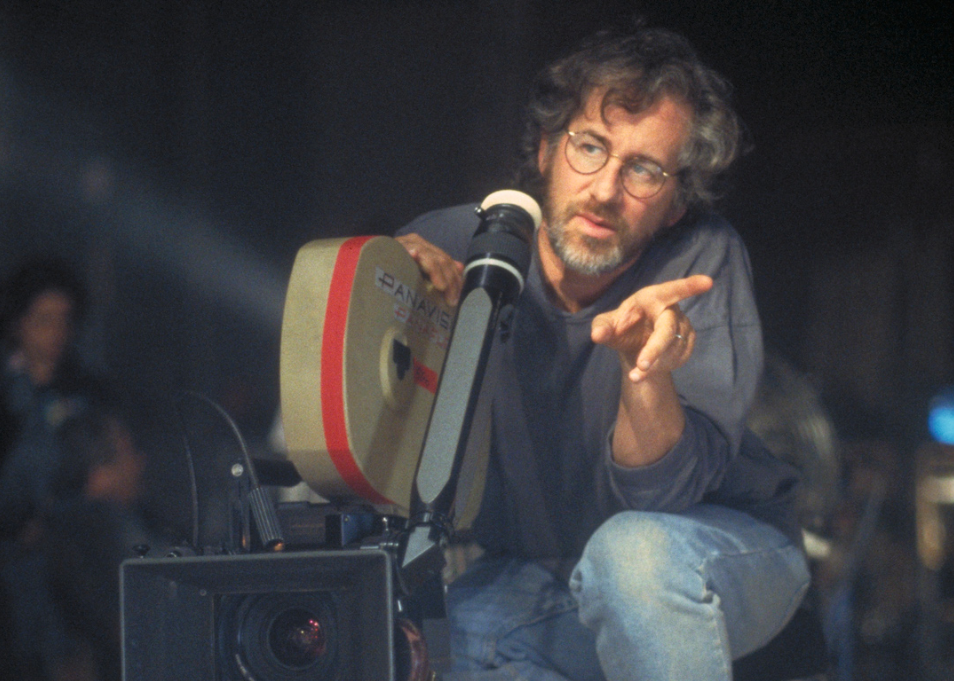
Murray Close // Getty Images
Steven Spielberg films ranked from worst to first
Among the great American movie directors, Steven Spielberg shines as one of the most celebrated in Hollywood. With a career spanning over four decades and 33 feature films, Spielberg is not only a prolific filmmaker but a pioneer in modern filmmaking. After witnessing his 1975 breakout hit “Jaws,” Alfred Hitchcock remarked that Spielberg “is the first one of us who doesn’t see the proscenium arch,” praising his willingness to take risks and defy classical filmmaking conventions.
And as the young director grew and made more box-office hits, his trailblazing efforts certainly paid off. “Jaws,” “E.T. the Extra-Terrestrial,” and “Jurassic Park” broke box-office records, helping him become the highest-grossing director in history. Spielberg won the Academy Award for Best Director for “Schindler’s List” and “Saving Private Ryan,” in addition to many other nominations for his films throughout the years. His credits also span many different genres, from the action-packed Indiana Jones franchise to the sci-fi classic “Close Encounters of the Third Kind” to humanistic films such as “The Color Purple”—Spielberg is clearly a man of many talents.
To honor his work, Stacker looked at the IMDb user rating and critical Metascore for each feature film directed by Spielberg and ranked his filmography according to Stacker score, an evenly weighted blend of IMDb and Metacritic data. See which of the Spielberg canon couldn’t beat the pack, all the way to his chef-d’oeuvre.
You may also like: 50 best WWII movies of all time
![]()
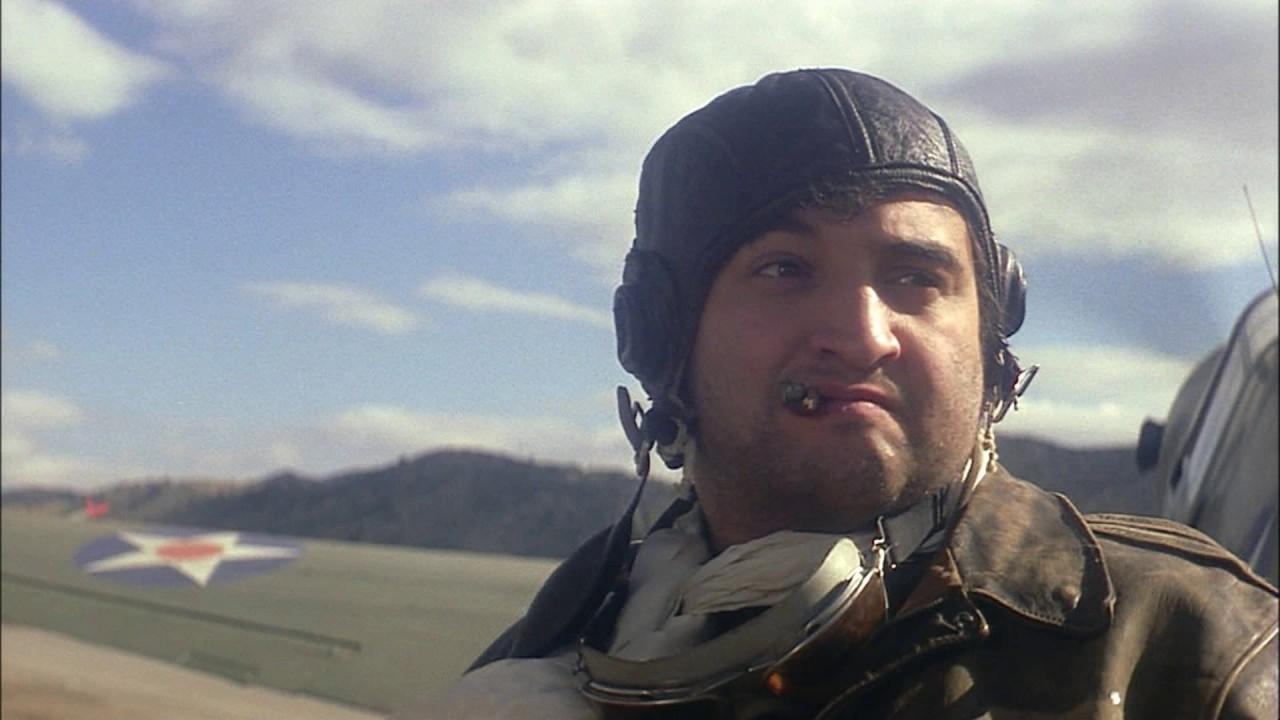
Universal Pictures
#33. 1941 (1979)
– Stacker score: 50
– IMDb user rating: 5.8
– Metascore: 34
– Runtime: 118 minutes
If you just considered the stacked cast, this 1979 comedy film featuring Dan Aykroyd, John Belushi, and John Candy had everything going for it. Unfortunately, its comedic treatment of the Great Los Angeles Air Raid as well as the bombardment of Santa Barbara, California’s Ellwood Oil Refinery fell short of its critically and financially successful contemporaries.
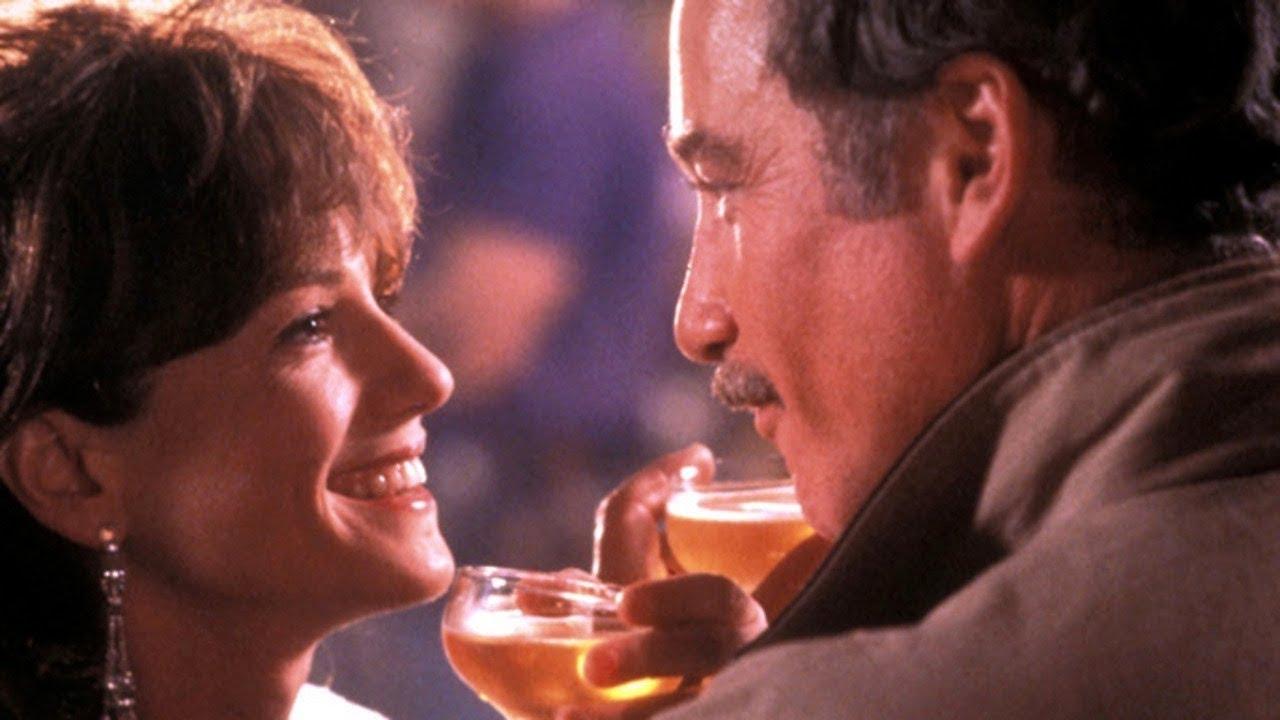
Universal Pictures
#32. Always (1989)
– Stacker score: 61.96
– IMDb user rating: 6.4
– Metascore: 50
– Runtime: 122 minutes
A remake of the 1943 drama “A Guy Named Joe,” “Always” tells the story of a dead firefighter pilot who mentors another budding pilot and watches as he and the woman he left behind fall in love. Richard Dreyfuss, Holly Hunter, and John Goodman star in the film, as well as the late Audrey Hepburn in her final performance before her death. Though “Always” wasn’t a smash itself, some critics credit the film for inspiring the 1990 megahit romance “Ghost.”
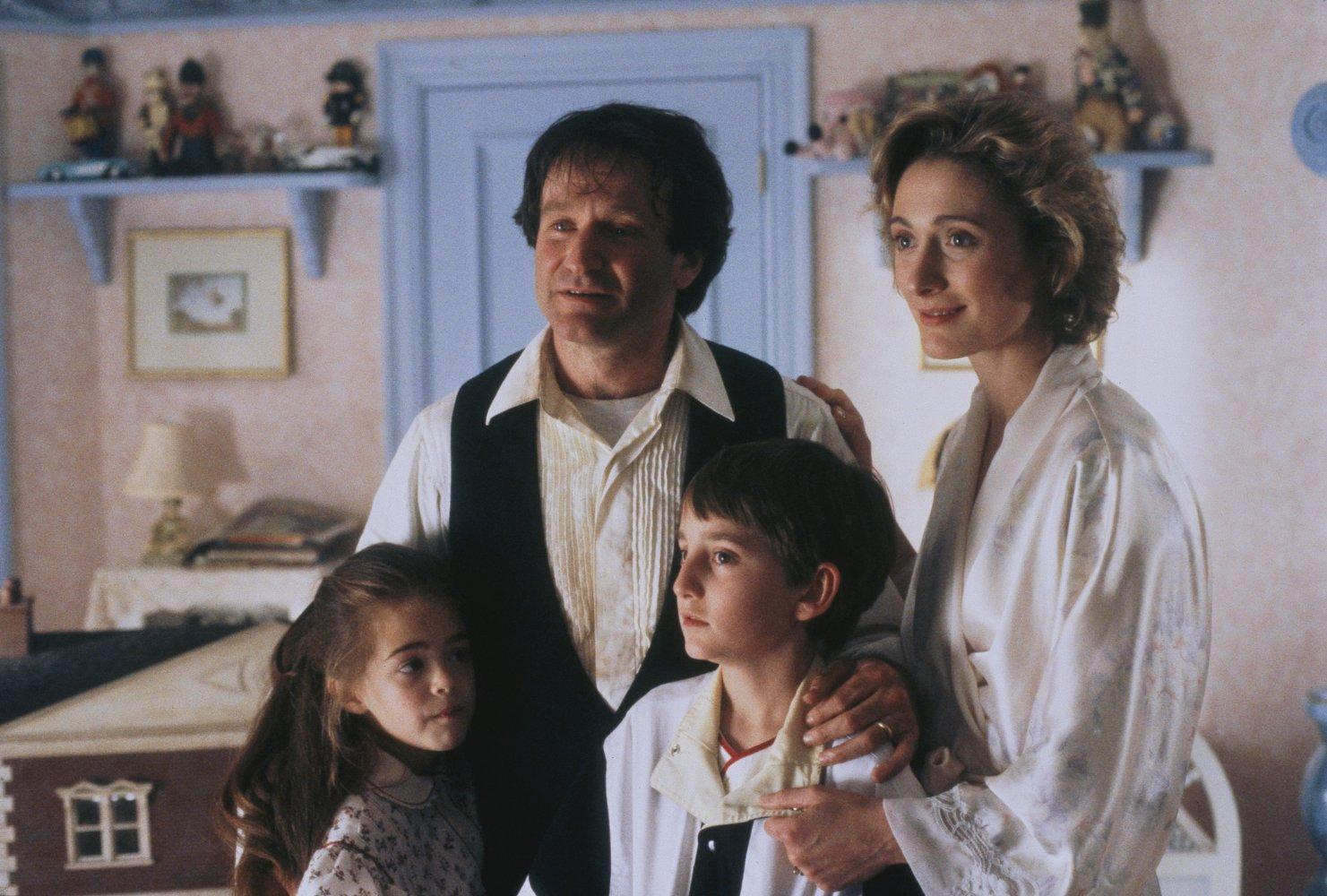
Amblin Entertainment
#31. Hook (1991)
– Stacker score: 65.22
– IMDb user rating: 6.8
– Metascore: 52
– Runtime: 142 minutes
This updated take on the story of Peter Pan did much better with audiences than with critics, resulting in a measly 29% on the Tomatometer. While “Hook”—starring Robin Williams, Dustin Hoffman, Gwyneth Paltrow, and Julia Roberts—was one of the top-grossing films in 1991, critics found it to be too cookie-cutter. Roger Ebert said of the film, “The crucial failure in ‘Hook’ is its inability to re-imagine the material, to find something new, fresh or urgent to do with the Peter Pan myth.”
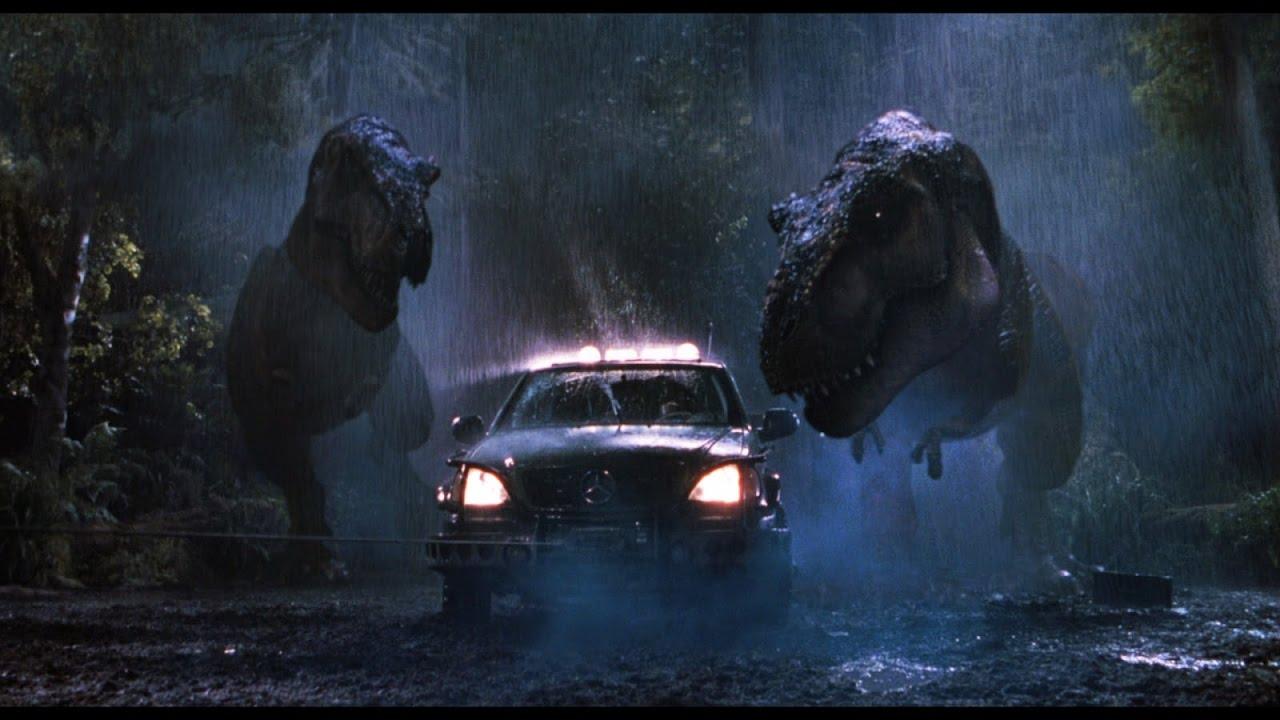
Universal Pictures
#30. The Lost World: Jurassic Park (1997)
– Stacker score: 67.39
– IMDb user rating: 6.5
– Metascore: 59
– Runtime: 129 minutes
The sequel to the 1993 blockbuster “Jurassic Park,” “The Lost World: Jurassic Park” fell short of critics’ expectations (as sequels often do) and only recast Jeff Goldblum in a major role as the eccentric brainiac Dr. Ian Malcolm. A darker film than its predecessor, this chapter of the story revolves around two teams—one led by Dr. Malcolm, another made of John Hammond’s nephew at InGen—who face the cloned dinosaurs inhabiting an island off of Costa Rica. The film received an Academy Award nomination for Best Visual Effects, thanks to the CGI-rendered dinosaurs.
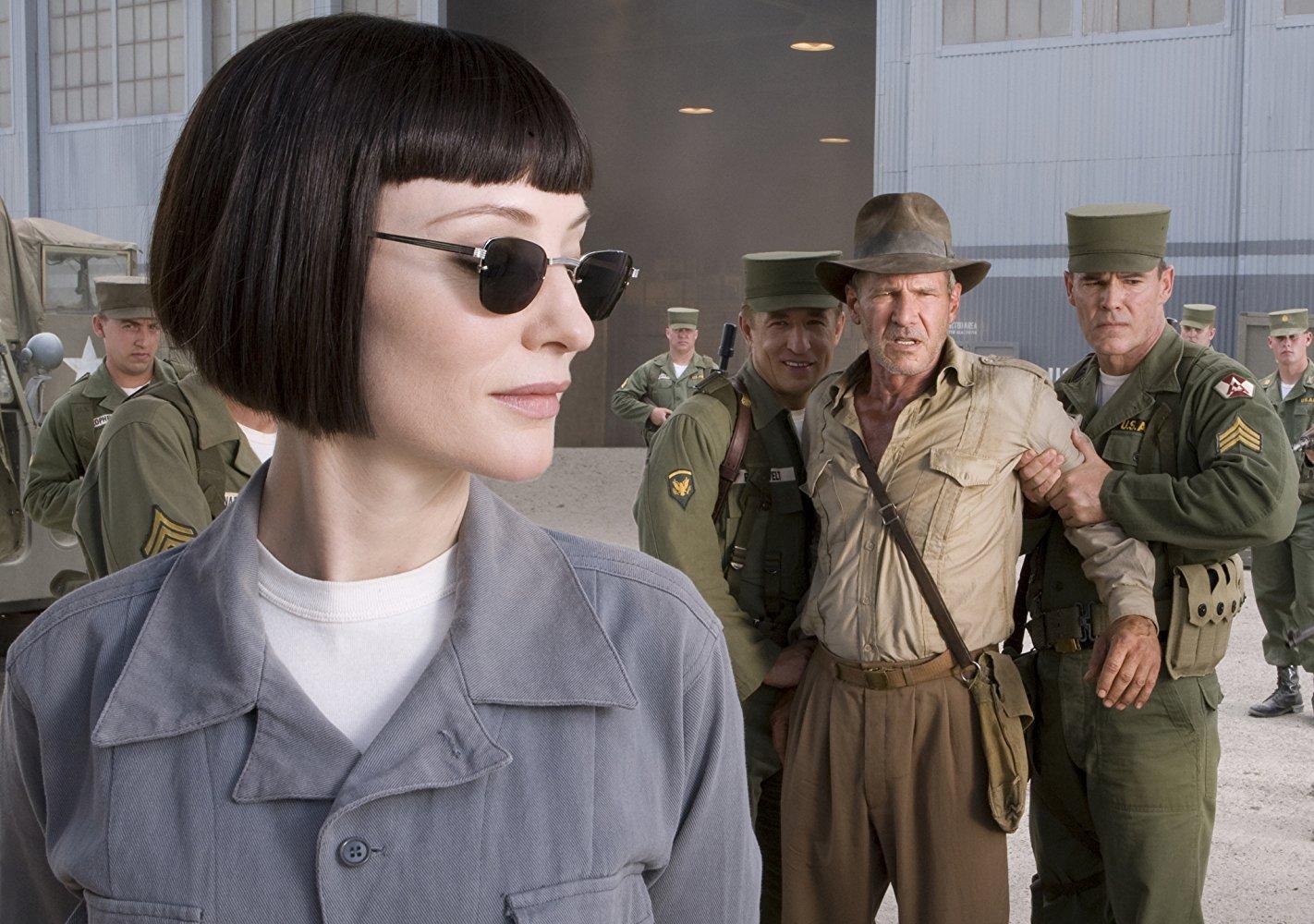
Paramount Pictures
#29. Indiana Jones and the Kingdom of the Crystal Skull (2008)
– Stacker score: 69.02
– IMDb user rating: 6.2
– Metascore: 65
– Runtime: 122 minutes
The fourth installment of the Indiana Jones film franchise, “Indiana Jones and the Kingdom of the Crystal Skull” stars Harrison Ford in the title role. Along with a young mentee named Mutt (Shia LaBeouf), Jones competes with Soviet agents (Cate Blanchett) to get hold of a telepathic crystal skull. Nineteen years after the previous film in the series, this installment fell short of expectations for audiences (53%) but was more popular with critics (77%). Many felt the lazy dialogue and overuse of CGI overwhelmed the thrill of the action.
You may also like: 50 times actors hated their own movies
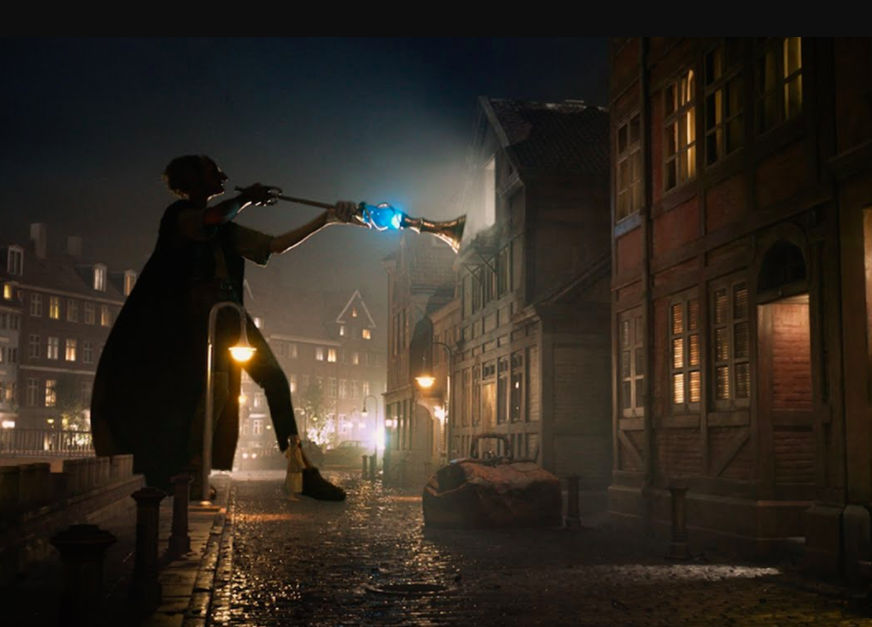
Walt Disney Pictures
#28. The BFG (2016)
– Stacker score: 70.11
– IMDb user rating: 6.3
– Metascore: 66
– Runtime: 117 minutes
Based on Roald Dahl’s 1982 novel of the same name, “The BFG” is a fantasy-adventure animated film starring Mark Rylance and Ruby Barnhill about a human girl and the Big Friendly Giant who come together to stop man-eating giants from threatening humankind. The film grossed about $55 million in North America, one of Spielberg’s lowest figures yet. The Hollywood Reporter compared the film to the more successful “E.T. the Extra-Terrestrial,” saying “The BFG” was “conspicuously less captivating, magical and transporting experience than its classic forebear.”
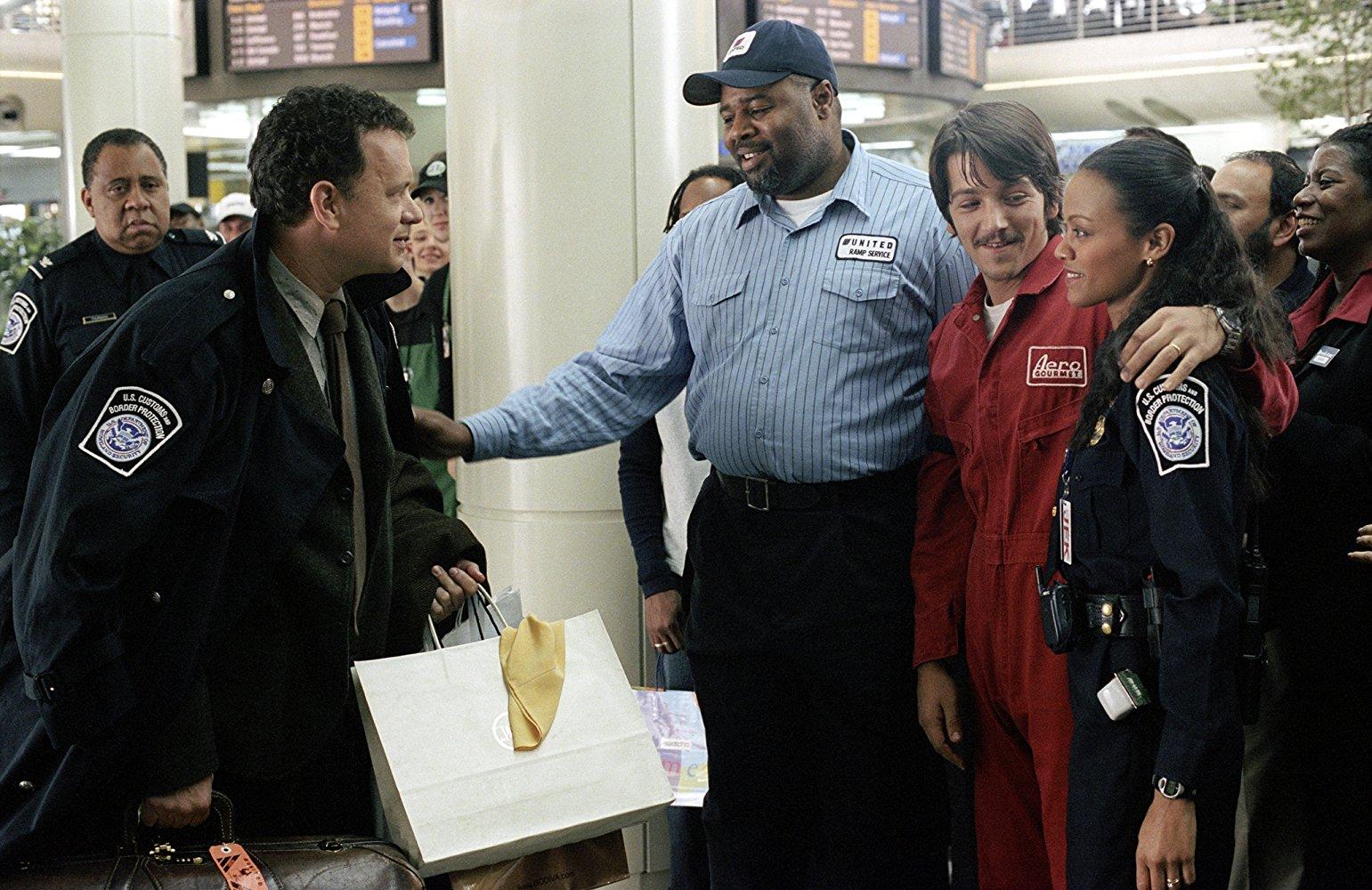
DreamWorks
#27. The Terminal (2004)
– Stacker score: 70.11
– IMDb user rating: 7.4
– Metascore: 55
– Runtime: 128 minutes
“The Terminal” marked one of Spielberg’s more successful forays into the romantic comedy genre, though the film arguably featured a whole lot of drama. Tom Hanks plays an immigrant who finds himself stuck in John F. Kennedy International Airport when he is both simultaneously denied entry into the United States and a military coup breaks out in his home country. The film, partially inspired by an Iranian refugee who was stranded in Paris’ Charles de Gaulle Airport for 18 years, received an acceptable 61% on Rotten Tomatoes.
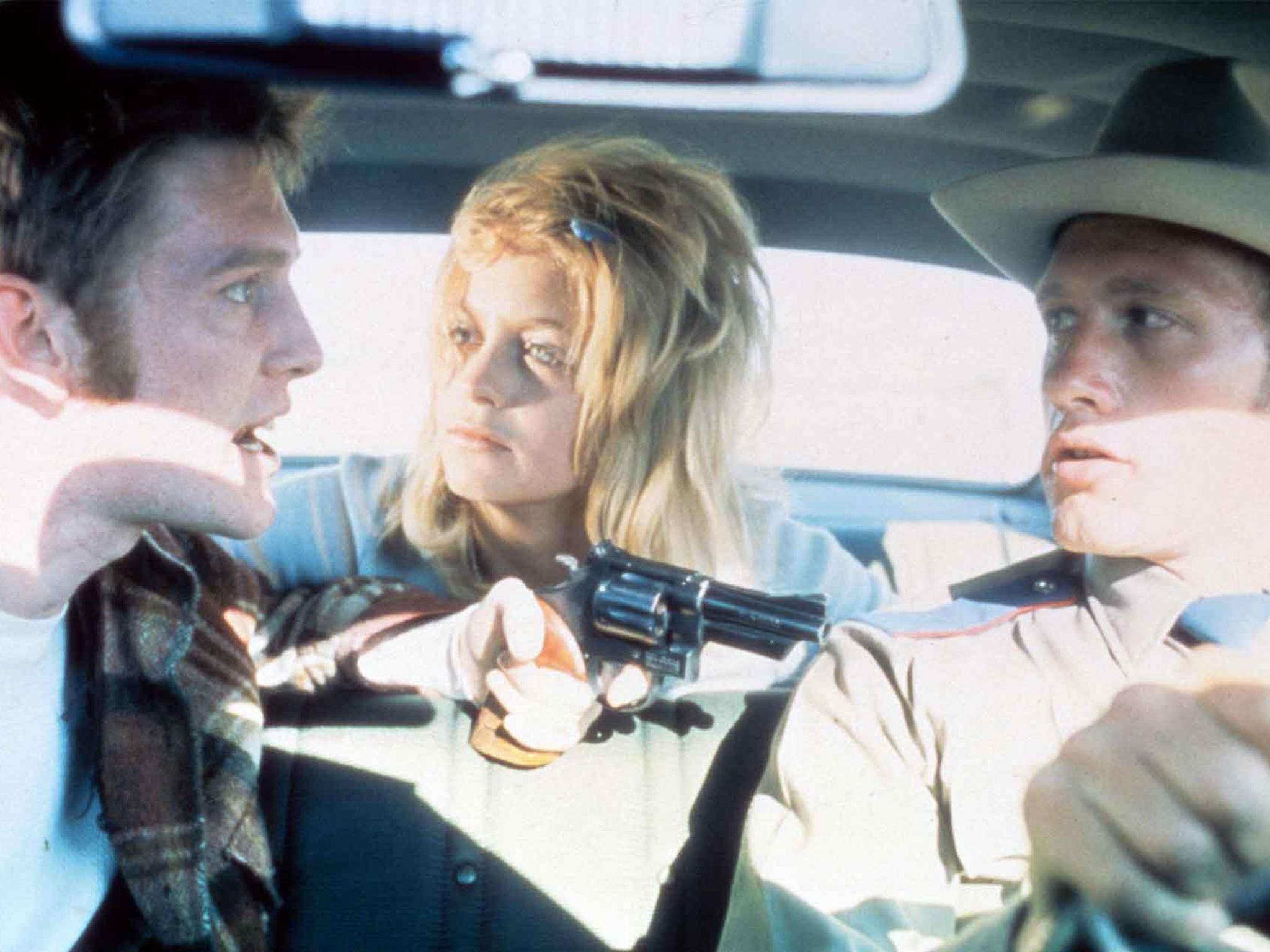
Universal Pictures
#26. The Sugarland Express (1974)
– Stacker score: 71.74
– IMDb user rating: 6.7
– Metascore: 65
– Runtime: 110 minutes
This 1974 crime drama was not only Spielberg’s directorial debut feature film but marked the first time the filmmaker collaborated with composer John Williams on the soundtrack—a partnership that would continue for all but four of Spielberg’s films. The story follows a married couple (Goldie Hawn and William Atherton) on the run from the law in Sugarland, Texas. “The Sugarland Express” received a whopping 91% on Rotten Tomatoes and the award for Best Screenplay at the 1974 Cannes Film Festival.
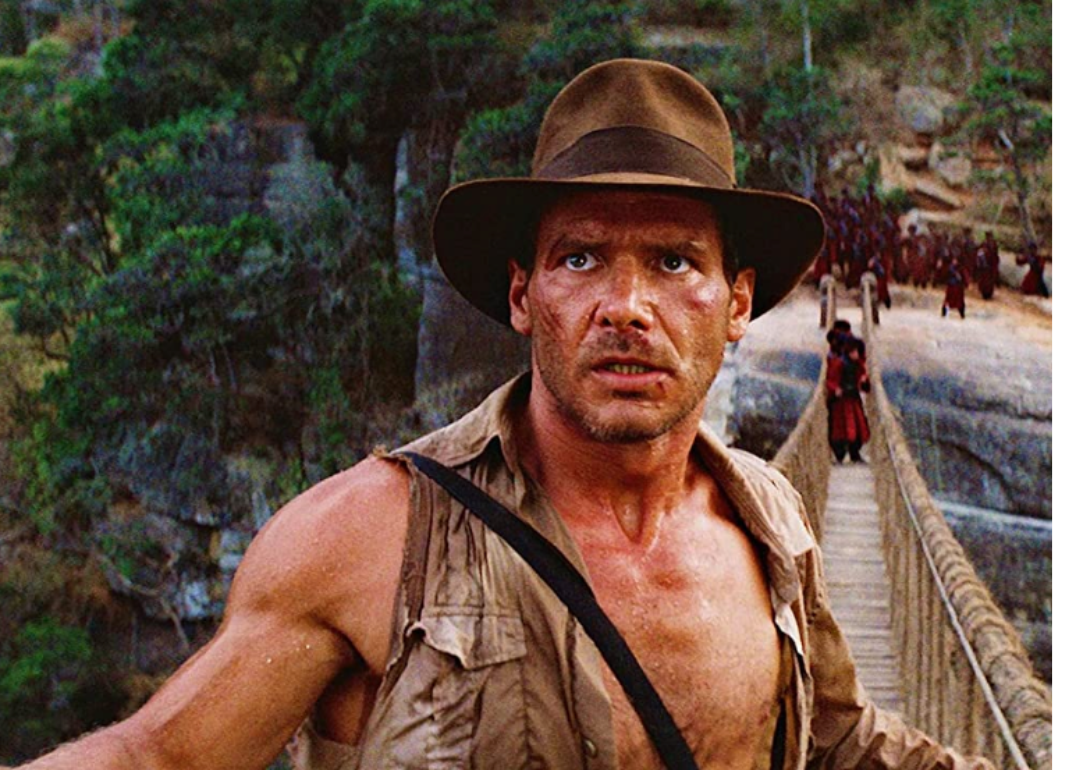
Paramount Pictures
#25. Indiana Jones and the Temple of Doom (1984)
– Stacker score: 71.74
– IMDb user rating: 7.5
– Metascore: 57
– Runtime: 118 minutes
In the second installment of the Indiana Jones franchise, “Indiana Jones and the Temple of Doom,” Jones (Harrison Ford) faces the task of saving Indian children from being sacrificed to the goddess Kali from a Thuggee cult. The film saw the highest opening weekend of 1984 but was met with some criticism for its violence (despite being rated PG-13), dark themes, and stereotypical portrayal of Indian culture and Hinduism.
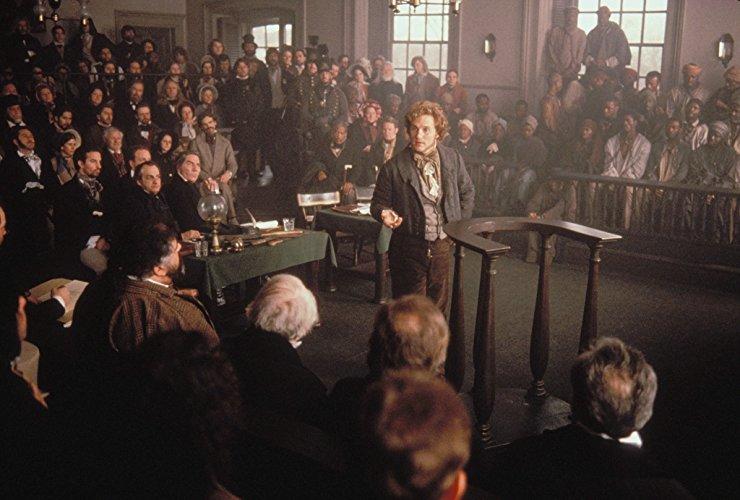
DreamWorks
#24. Amistad (1997)
– Stacker score: 73.91
– IMDb user rating: 7.3
– Metascore: 63
– Runtime: 155 minutes
Morgan Freeman, Anthony Hopkins (in an Oscar-nominated performance), Djimon Hounsou, and Matthew McConaughey star in this 1997 historical drama. “Amistad” received an overall decent critical reception as a film that gave a voice and face to the slave trade, although others have argued it’s just another example of a film that touts the white savior narrative.
You may also like: Incredible filming locations from popular movies
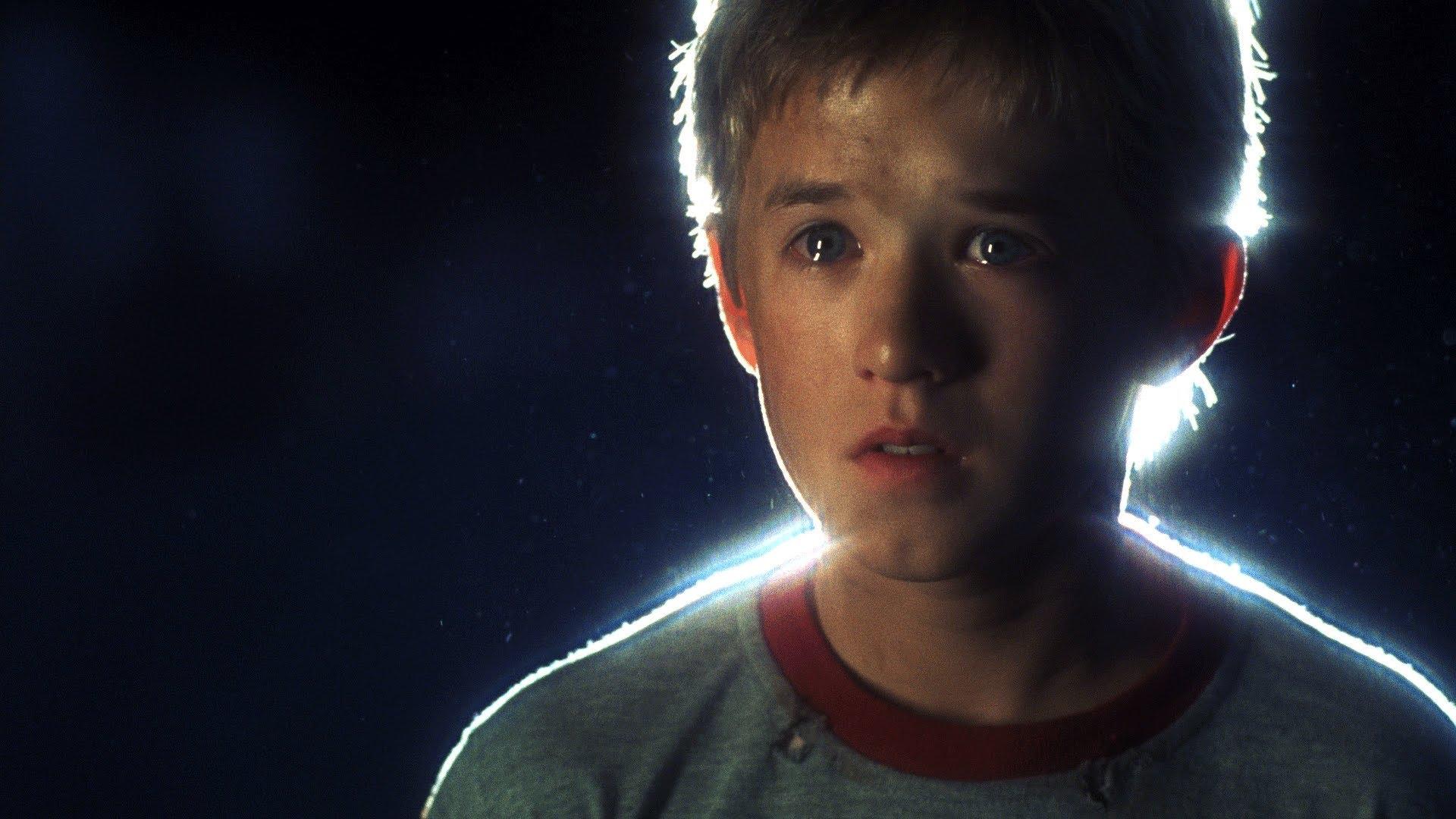
Warner Bros.
#23. A.I. Artificial Intelligence (2001)
– Stacker score: 74.46
– IMDb user rating: 7.2
– Metascore: 65
– Runtime: 146 minutes
“A.I. Artificial Intelligence” is a film that follows a childlike android (Haley Joel Osment) in a post-climate change society who has the ability to have compassion. Jude Law also stars in the film, which was handed to Spielberg by late director Stanley Kubrick after the latter felt that using a human actor couldn’t adequately bring Brian Aldiss’ 1969 short story “Supertoys Last All Summer Long” to life. Though its 73% Rotten Tomatoes rating reflected the critics’ split views on the film, it ultimately was regarded as an interesting convergence of two brilliant directors’ minds.
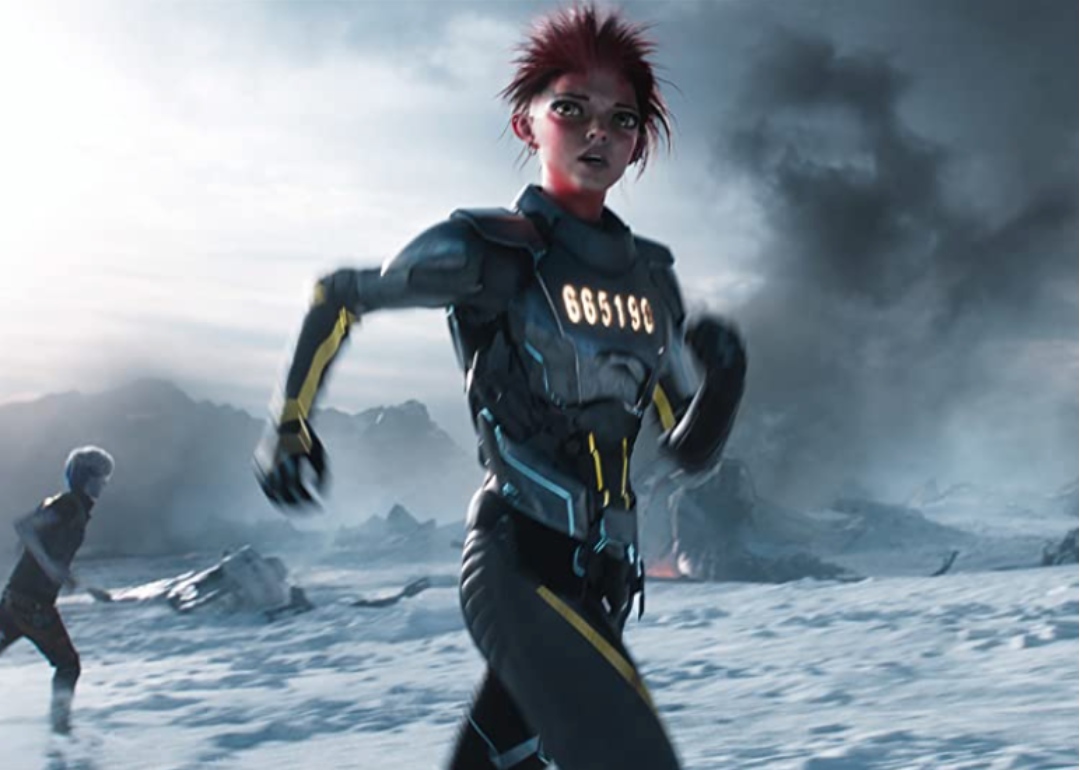
Amblin Entertainment
#22. Ready Player One (2018)
– Stacker score: 75
– IMDb user rating: 7.4
– Metascore: 64
– Runtime: 140 minutes
In this futuristic sci-fi film, Spielberg introduces the world of OASIS. It’s a virtual universe not unlike a video game, where real-life people spend most of their time, rather than the world. However, the owner of this virtual life has placed the game and its fortune up for grabs in a competition for anyone to win. The main character, Wade Watts, is played by Tye Sheridan, and viewers get to meet two sides of his character: his human self and the OASIS version. Critics generally praised the film for its enthralling adventure and for alternating between reality and fantasy. While it wasn’t nominated for any major awards, it was nominated at the MTV Movie & TV Awards and Teen Choice Awards.
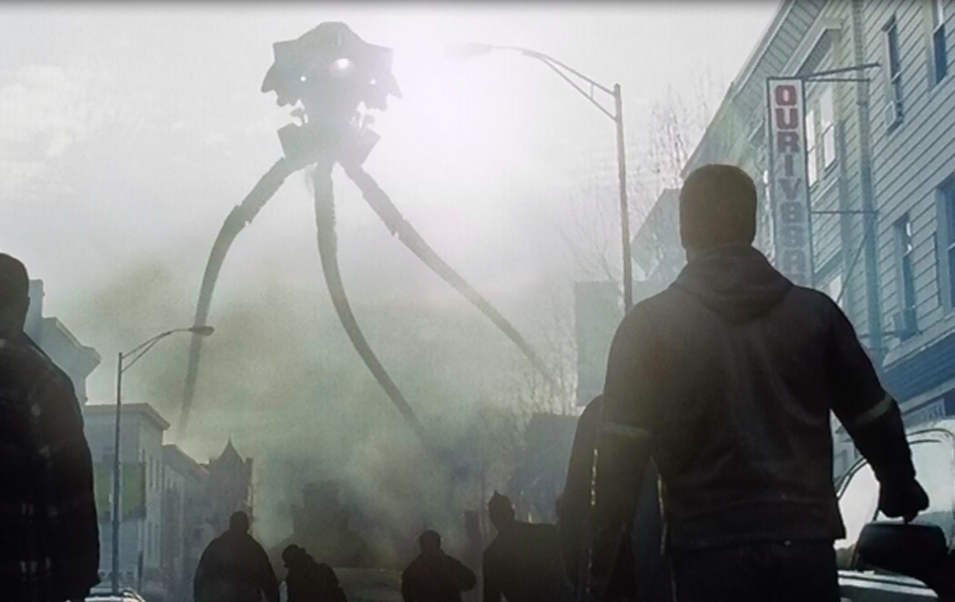
Paramount Pictures
#21. War of the Worlds (2005)
– Stacker score: 75
– IMDb user rating: 6.5
– Metascore: 73
– Runtime: 116 minutes
This science fiction thriller “War of the Worlds,” based on the novel of the same name by H.G. Wells, follows a man in his desperate struggle to reunite his family under the threat of an alien invasion. The Tom Cruise and Dakota Fanning starrer was nominated for three Academy Awards (Visual Effects, Sound Mixing, and Sound Editing) but fell short in the eyes of critics and moviegoers, with the New York Post criticizing the film for having the “lamest ending yet to a Steven Spielberg movie.”
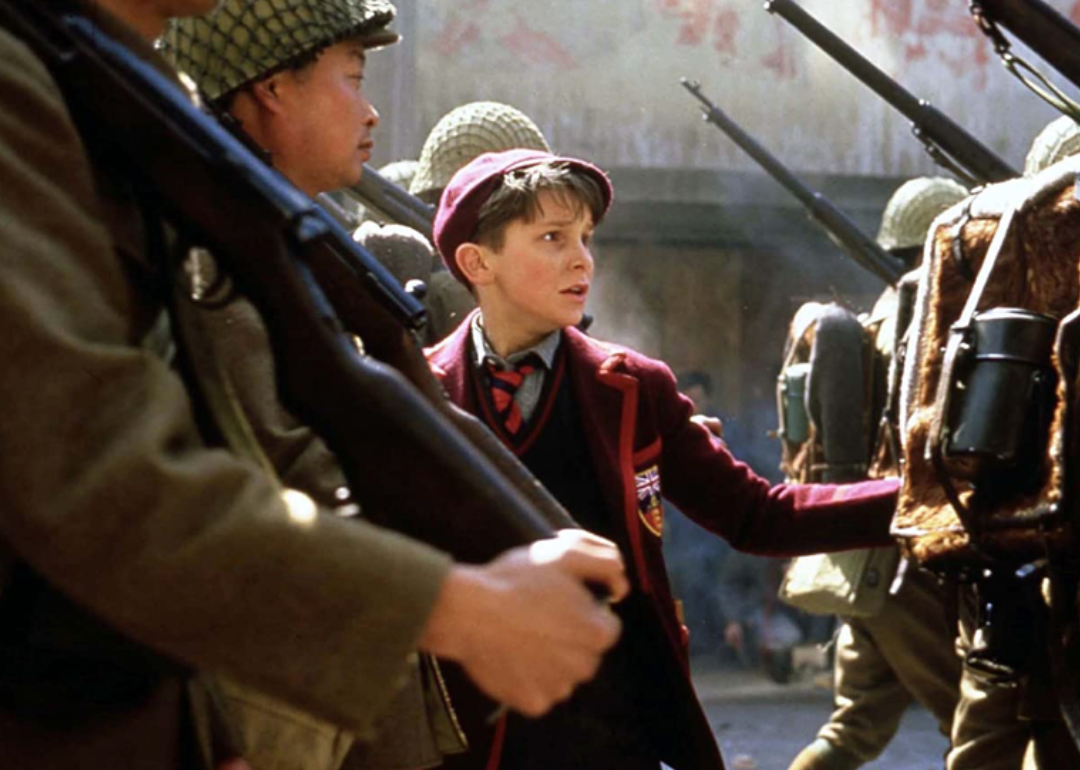
Amblin Entertainment
#20. Empire of the Sun (1987)
– Stacker score: 75.54
– IMDb user rating: 7.7
– Metascore: 62
– Runtime: 153 minutes
Starring John Malkovich, the 1982 war film “Empire of the Sun” tells the story of a British boy who becomes a prisoner of war in Japan during World War II. With a Metascore of 62 and a Tomatometer of 70%, the film had a fine critical reception, but it didn’t perform at the box office, drawing a mere $66 million worldwide. Spielberg conceded he “knew going in that ‘Empire of the Sun’ wasn’t a very commercial project. I’ve earned the right to fail commercially.”
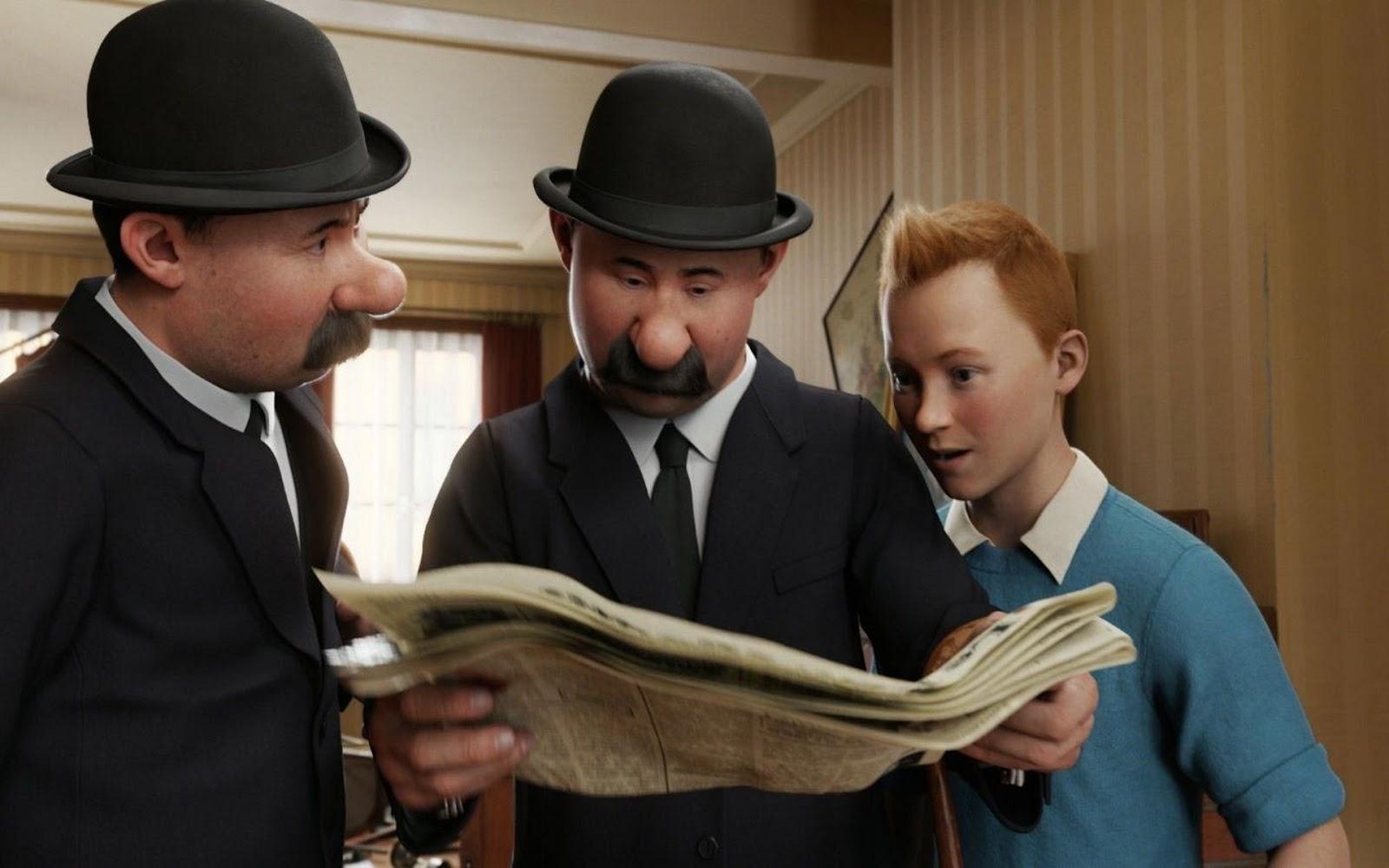
Columbia Pictures
#19. The Adventures of Tintin (2011)
– Stacker score: 76.63
– IMDb user rating: 7.3
– Metascore: 68
– Runtime: 107 minutes
“The Adventures of Tintin” is based on the popular Belgian comic series by Hergé and features an interesting blend of 3D motion-captured animation and live-action footage of stars Jamie Bell and Andy Serkis, among others. The film made about $373 million worldwide at the box office and was the first movie outside of Pixar to win the Golden Globe for Best Animated Feature Film. Critical consensus on Rotten Tomatoes felt that the spirit of “Tintin” was akin to “Raiders of the Lost Ark,” noting that, “drawing deep from the classic ‘Raiders of the Lost Ark’ playbook, Steven Spielberg has crafted another spirited, thrilling adventure in the form of ‘Tintin.'”
You may also like: 50 best movies about the Vietnam War
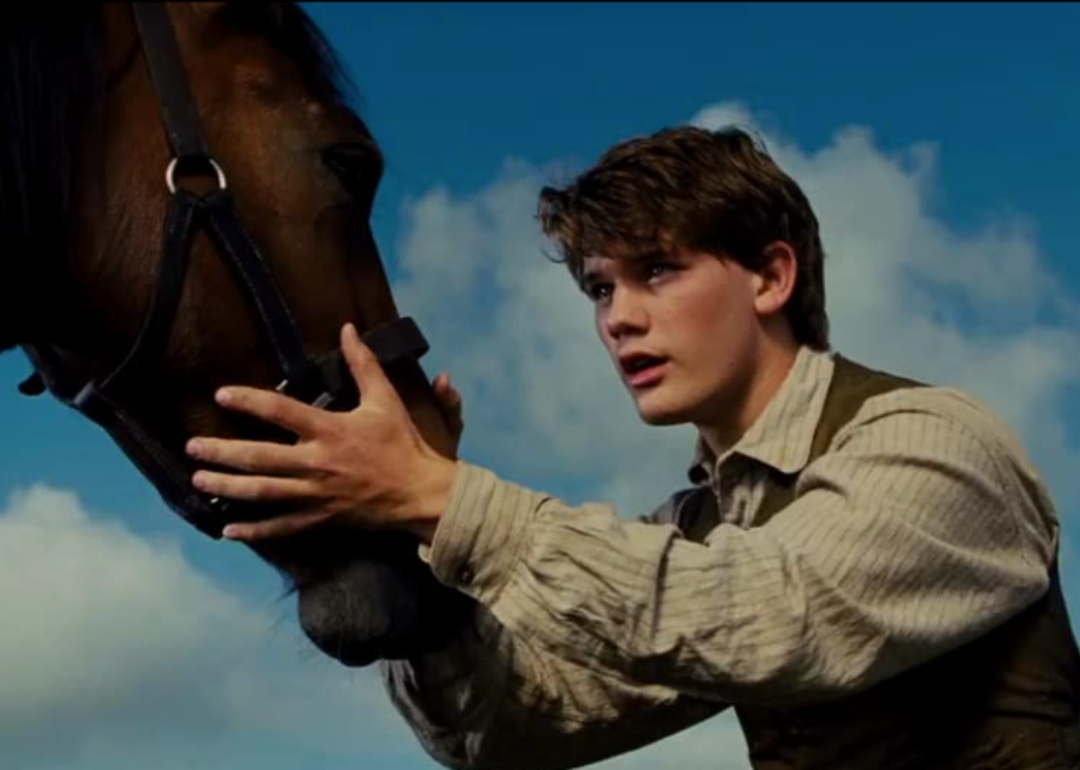
DreamWorks
#18. War Horse (2011)
– Stacker score: 78.26
– IMDb user rating: 7.2
– Metascore: 72
– Runtime: 146 minutes
The 2011 war drama “War Horse” was adapted from British novelist Michael Morpurgo’s 1982 novel of the same name. Featuring Jeremy Irvine in his film debut—as well as Emma Watson and Benedict Cumberbatch—the story follows Albert (Irvine), a British boy whose horse Joey is bought by the British Army. Its $177 million worldwide gross was the highest of any World War I movie (before 2017’s “Wonder Woman”) and received six Academy Awards, including Best Picture.
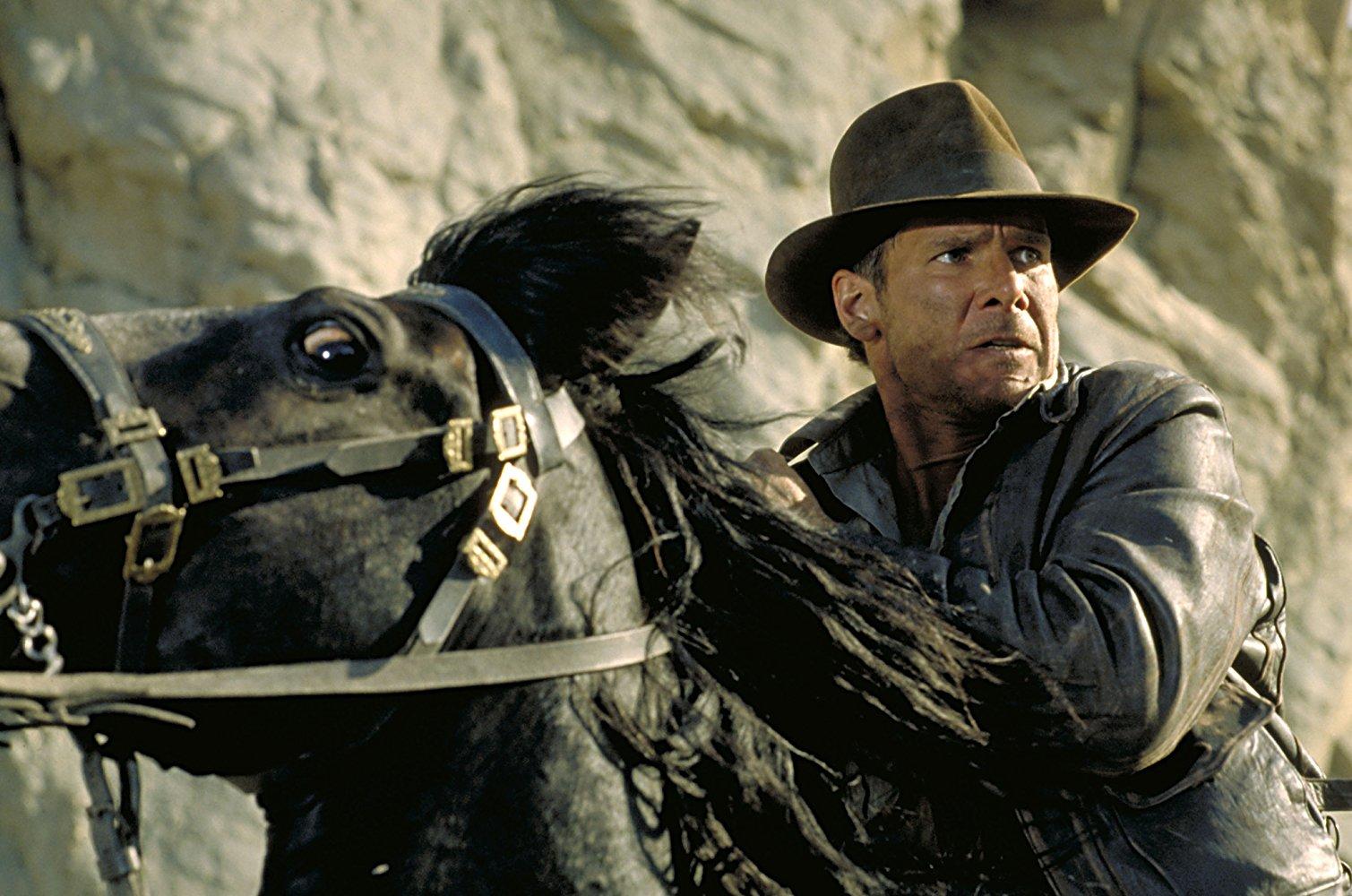
Paramount Pictures
#17. Indiana Jones and the Last Crusade (1989)
– Stacker score: 79.89
– IMDb user rating: 8.2
– Metascore: 65
– Runtime: 127 minutes
Harrison Ford once again reprises his titular role in the third installment of the Indiana Jones franchise. This time, Jones searches for his father, who, while searching for the Holy Grail, gets kidnapped by Nazis. Wanting to tone down the violence that marred the reputation of “Temple of Doom” five years earlier, Spielberg’s 1989 feature was more action-packed and less gory. The response to the film was split, with some praising the focus on the father-son relationship and others finding it lacking in depth.
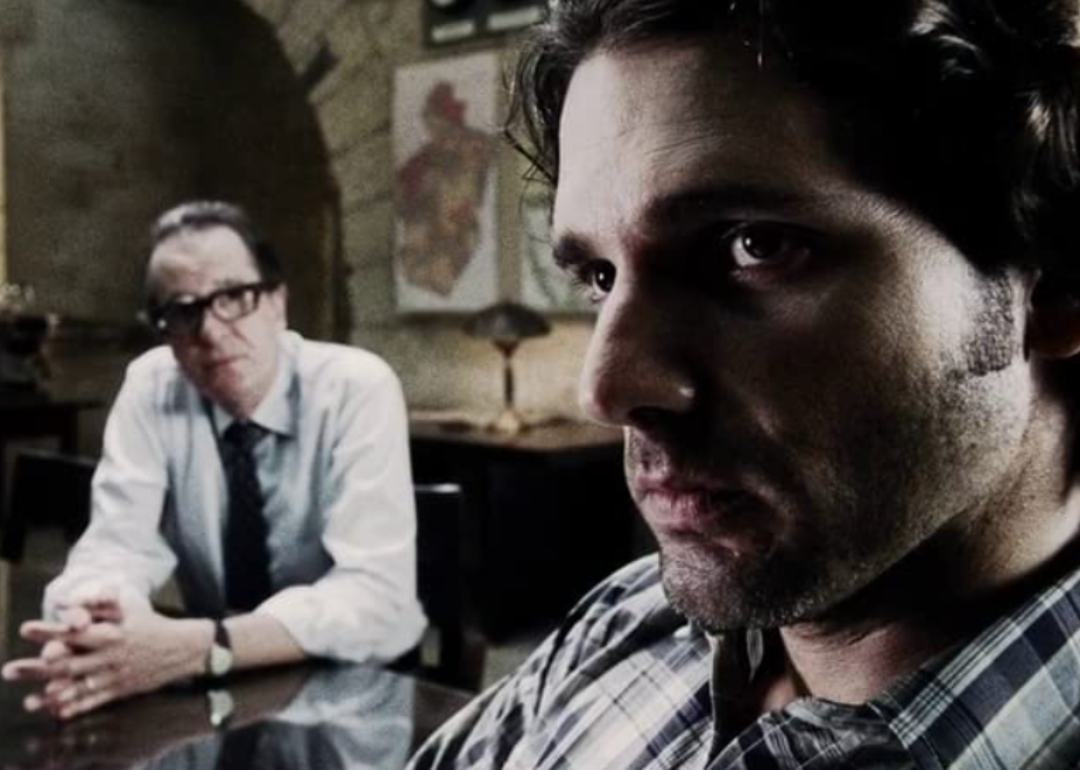
DreamWorks
#16. Munich (2005)
– Stacker score: 80.98
– IMDb user rating: 7.5
– Metascore: 74
– Runtime: 164 minutes
The 2005 film “Munich” is a tale of assassins who look to enact revenge against the Black September Organization, a Palestinian terrorist group that had taken and murdered 11 Israeli athletes. In 2017, The New York Times’ A.O Scott ranked “Munich” #16 on his 25 Best Films of the 21st Century So Far list. Eric Bana and Daniel Craig star in the film. Though the subject matter proved provocative, Roger Ebert felt Spielberg opened the door to a much-needed conversation.
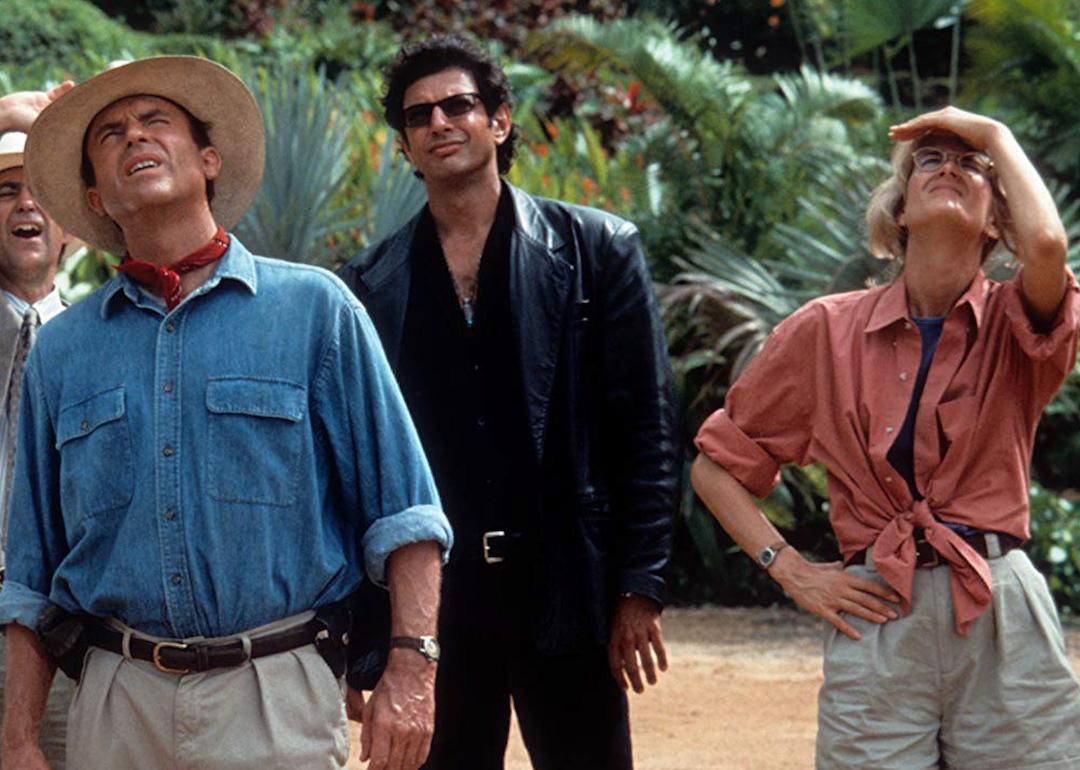
Universal Pictures
#15. Jurassic Park (1993)
– Stacker score: 81.52
– IMDb user rating: 8.2
– Metascore: 68
– Runtime: 127 minutes
The iconic science fiction adventure movie “Jurassic Park” is the first installment of the series about a philanthropist and genetic scientists who have created a park of cloned dinosaurs. The movie, based on the novel by Michael Crichton, made $357 million at the North American box office, making it the highest-grossing film in history. “Titanic,” however, came along in 1997 and stole its thunder, though the film still remains one of the top earners of all time. Its 3D effects—which some have said revolutionized visual effects in movies tremendously—a memorable soundtrack, and an exciting plot were to thank for its success, earning the film three Academy Awards in 1997 (Best Sound Editing, Best Sound Mixing, and Best Visual Effects). At the same ceremony, Spielberg also won for “Schindler’s List.”
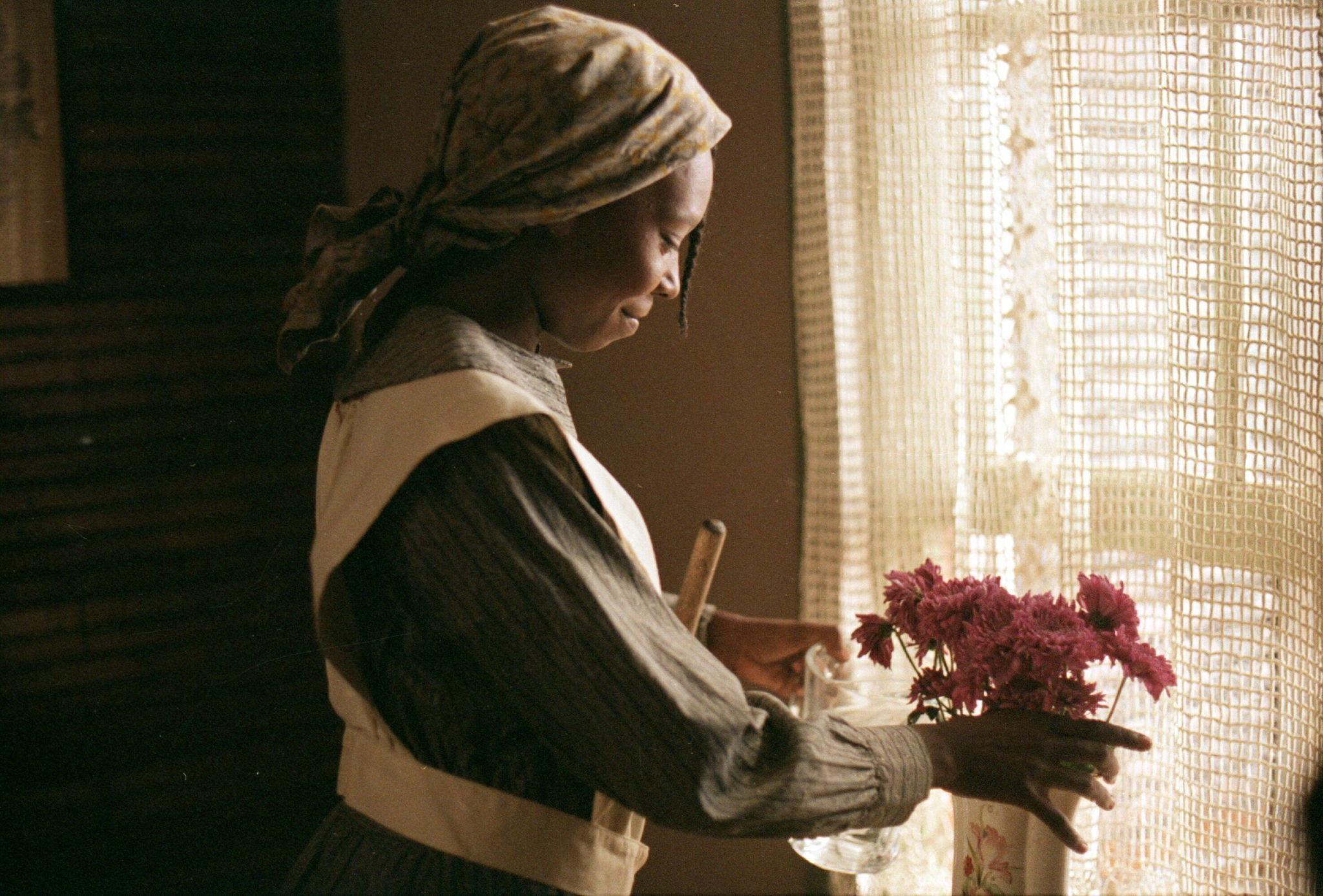
Amblin Entertainment
#14. The Color Purple (1985)
– Stacker score: 84.24
– IMDb user rating: 7.7
– Metascore: 78
– Runtime: 154 minutes
The Pulitzer Prize-winning book of the same name by Alice Walker was adapted into a film in 1985, starring Danny Glover, Oprah Winfrey, and Whoopi Goldberg (the latter two actors in their film debuts). Goldberg plays Celie Harris-Johnson, a Black woman faced with domestic violence and other hardships but is supported by two other women to find her sense of self. The film grossed over $143 million worldwide and received praise from critics (88% on Rotten Tomatoes and a 7.8 IMDb rating)—especially when it came to Goldberg’s performance. Roger Ebert called it “one of the most amazing debut performances in movie history.” Despite being nominated for 11 Academy Awards, went empty-handed.
You may also like: 15 controversial Oscar wins—and how they’ve aged
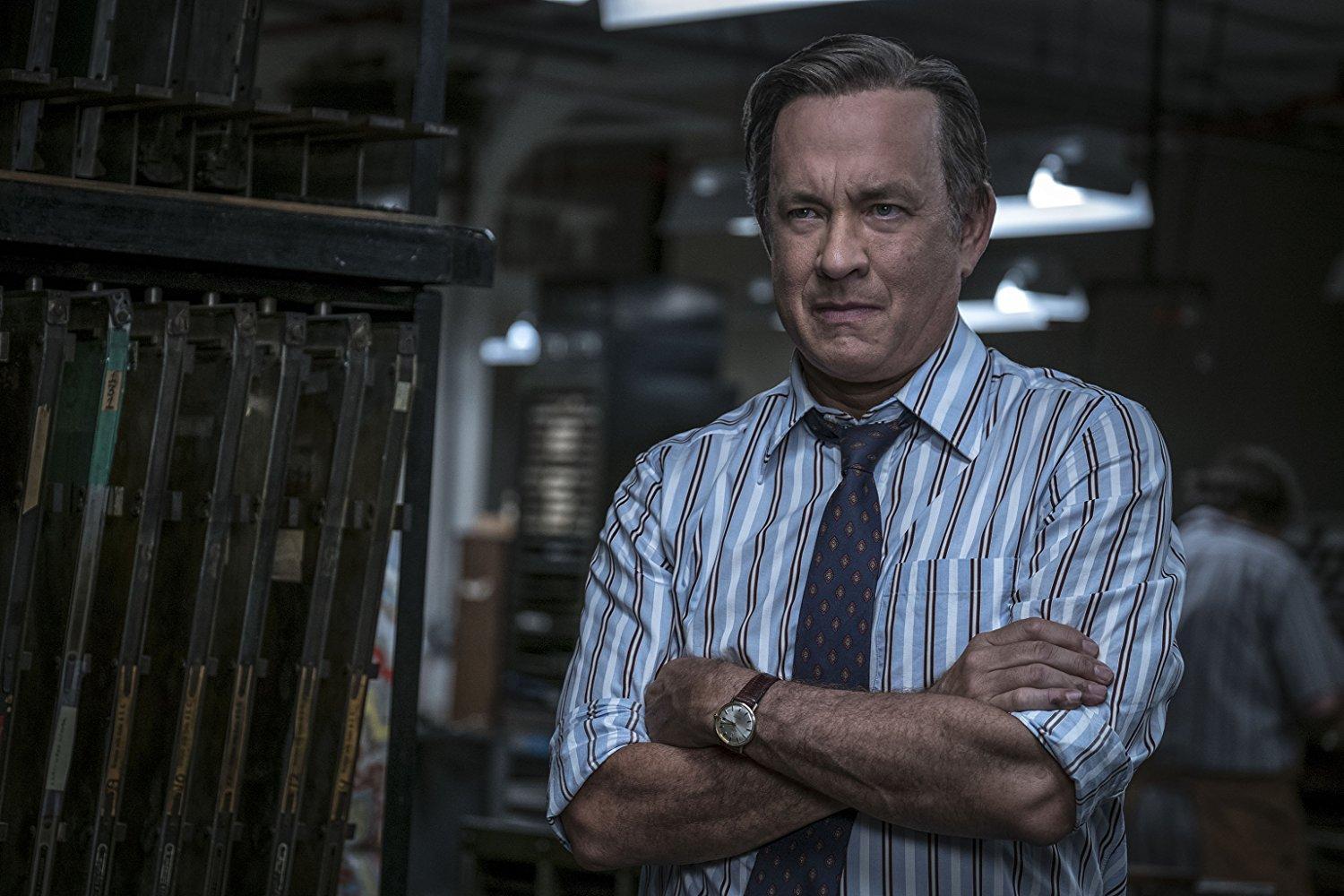
Amblin Entertainment
#13. The Post (2017)
– Stacker score: 84.24
– IMDb user rating: 7.2
– Metascore: 83
– Runtime: 116 minutes
This dramatic telling of the Washington Post’s handling of the Pentagon Papers earned Meryl Streep and Tom Hanks a bevy of award nominations. While history often discusses the role of The New York Times’ role in the publishing of the Pentagon Papers after the Vietnam War, Spielberg’s film does a deep dive into the complications the Washington Post faced in deciding to fight for the freedom of the press and the safety of the United States. Streep was nominated for Best Actress at the Academy Awards and the Golden Globe Awards, respectively, for her portrayal of Washington Post owner Kay Graham. At the 2018 Oscars, Spielberg was also nominated for Best Picture against “Get Out” and winner “The Shape of Water.”
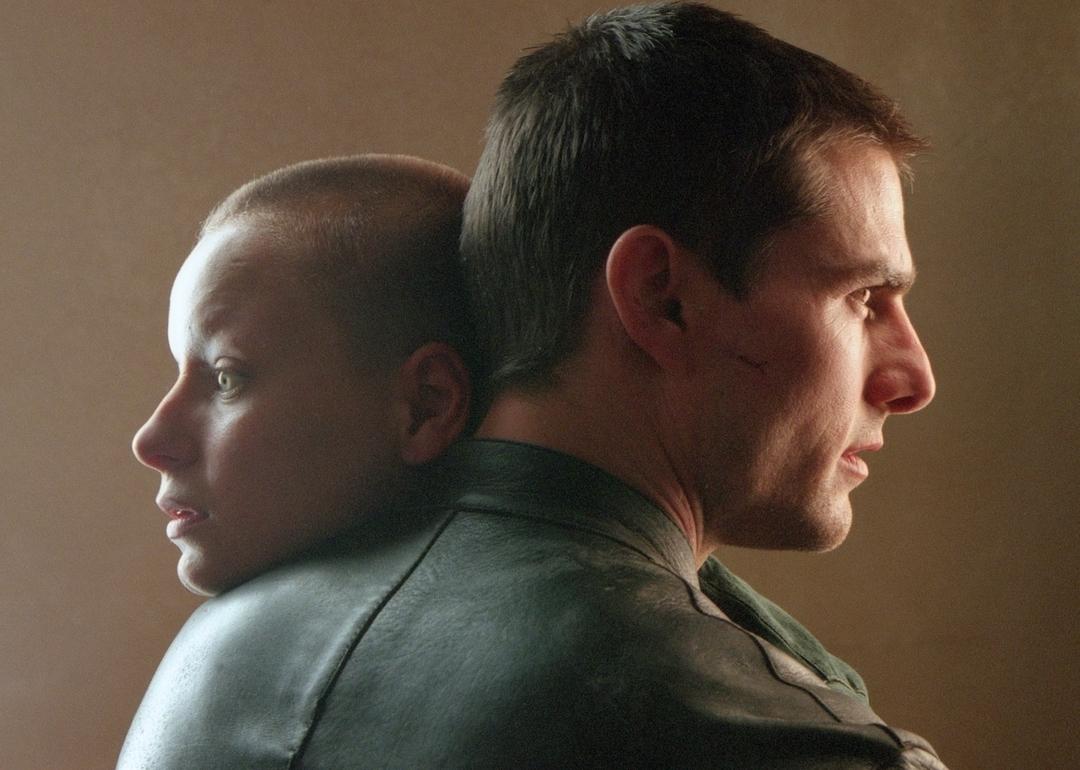
Twentieth Century Fox
#12. Minority Report (2002)
– Stacker score: 84.78
– IMDb user rating: 7.6
– Metascore: 80
– Runtime: 145 minutes
Set in Washington D.C. in 2054, the sci-fi thriller “Minority Report” details a special police department called Precrime that catches criminals before they commit crimes, based on the visions of psychics called Precogs. The chase begins when Precrime Chief John Anderton (Tom Cruise) is accused of a crime he did not commit and has to clear his name. Many critics found that this 2002 dystopian film marked a turning point in the development of Spielberg’s career, a leap forward in more “adult movie-making.” Roger Ebert called “Minority Report” a masterpiece, nothing that, while “most directors were putting ‘their trust in technology,’ Spielberg had already mastered it, and was emphasizing ‘story and character’ while merely using technology as a ‘workman uses his tools.'”
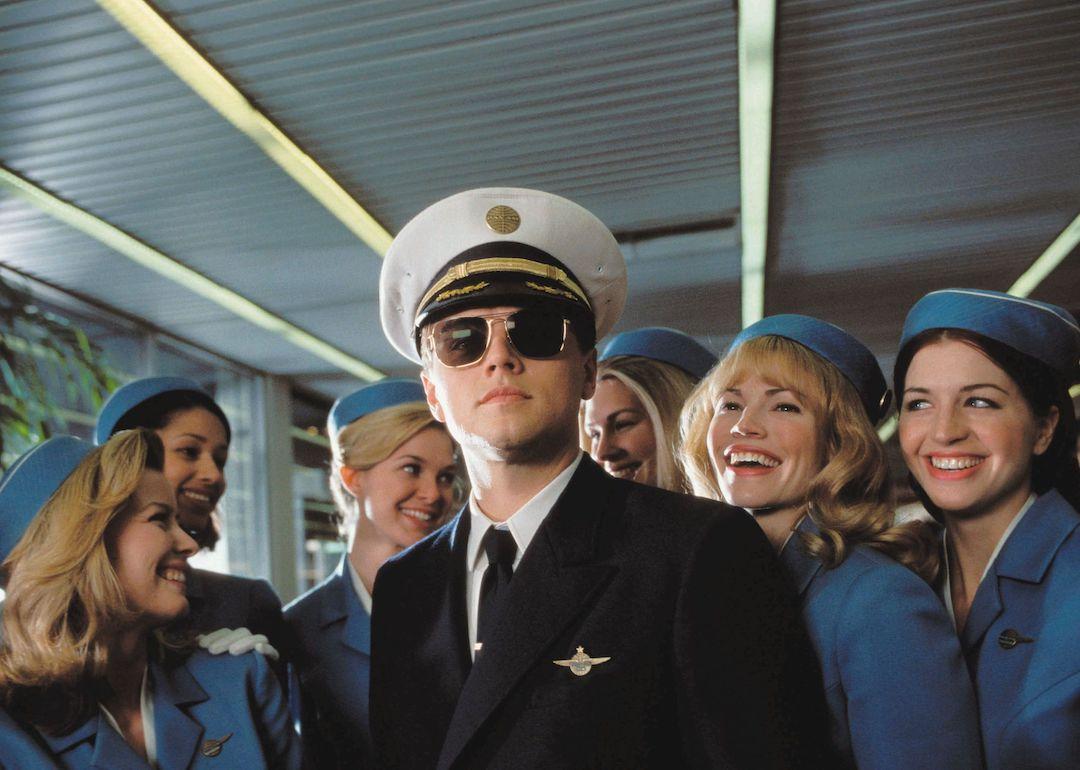
DreamWorks
#11. Catch Me If You Can (2002)
– Stacker score: 84.78
– IMDb user rating: 8.1
– Metascore: 75
– Runtime: 141 minutes
The 2002 biographical crime movie “Catch Me If You Can” stars Leonardo DiCaprio as Frank Abagnale, a man who spent years posing as a Pan-Am pilot, Georgia doctor, and a Louisiana prosecutor, all while making millions with check fraud. He was so skilled that, after he was caught, the FBI hired him to help sniff out other forgers. Tom Hanks, Christopher Walken, and Martin Sheen also starred in the film. The real Abagnale felt Spielberg was the only one who could do the film justice, and the director himself conceded that his parents’ divorce brought him closer to the project. “Some of my films have had to do with broken homes and people on the run from their sad pasts,” Spielberg said. “But there are those strands that got me to say: you know, there’s something also about me that I can say through the telling of this kind of lighthearted story.”
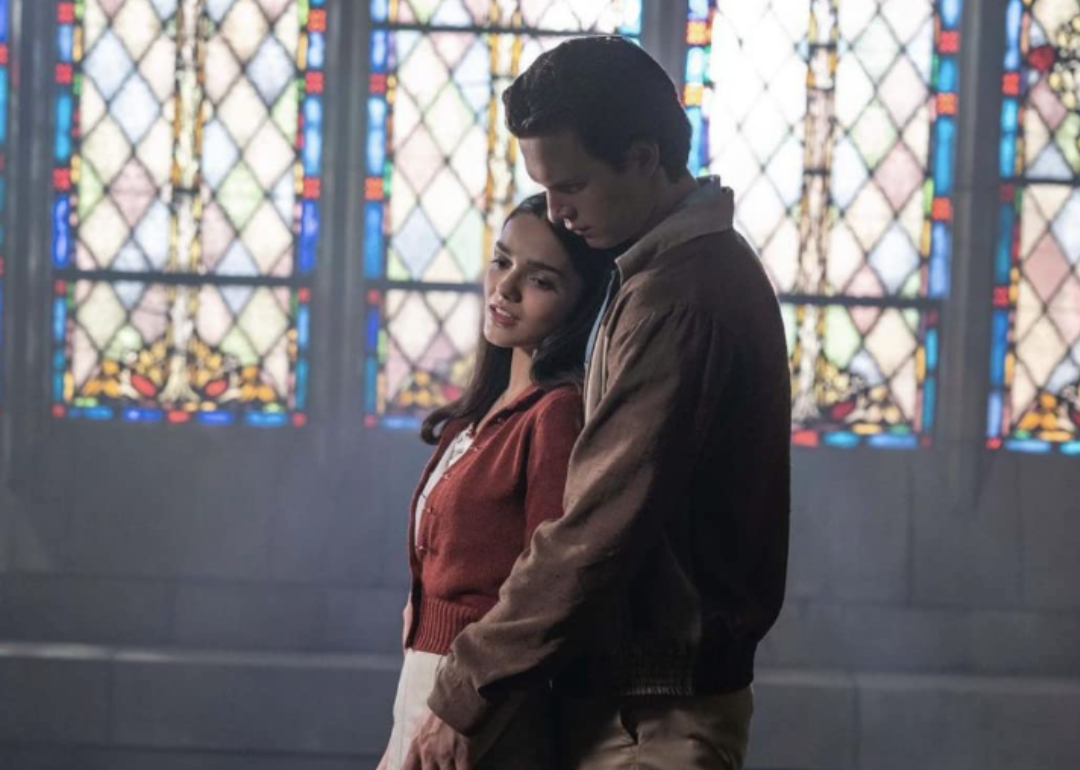
Twentieth Century Fox
#10. West Side Story (2021)
– Stacker score: 85.33
– IMDb user rating: 7.2
– Metascore: 85
– Runtime: 156 minutes
The latest iteration of the timeless stage play, 2021’s “West Side Story” stars Ansel Elgort and Rachel Zegler as Tony and Maria, star-crossed lovers from the opposite ends of a white-Puerto Rican gang feud brewing in 1950s New York. Despite an underwhelming performance at the box office, critics lauded Spielberg’s take on the Romeo and Juliet drama, with film buff David Stratton praising that the movie’s “dazzling dance routines are fit for the big screen.” Nominated seven times at the 94th Academy Awards, “West Side Story” walked away with a historic Best Supporting Actress win for Ariana DeBose (depicting Anita), making her the first queer woman of color to claim an acting Oscar.
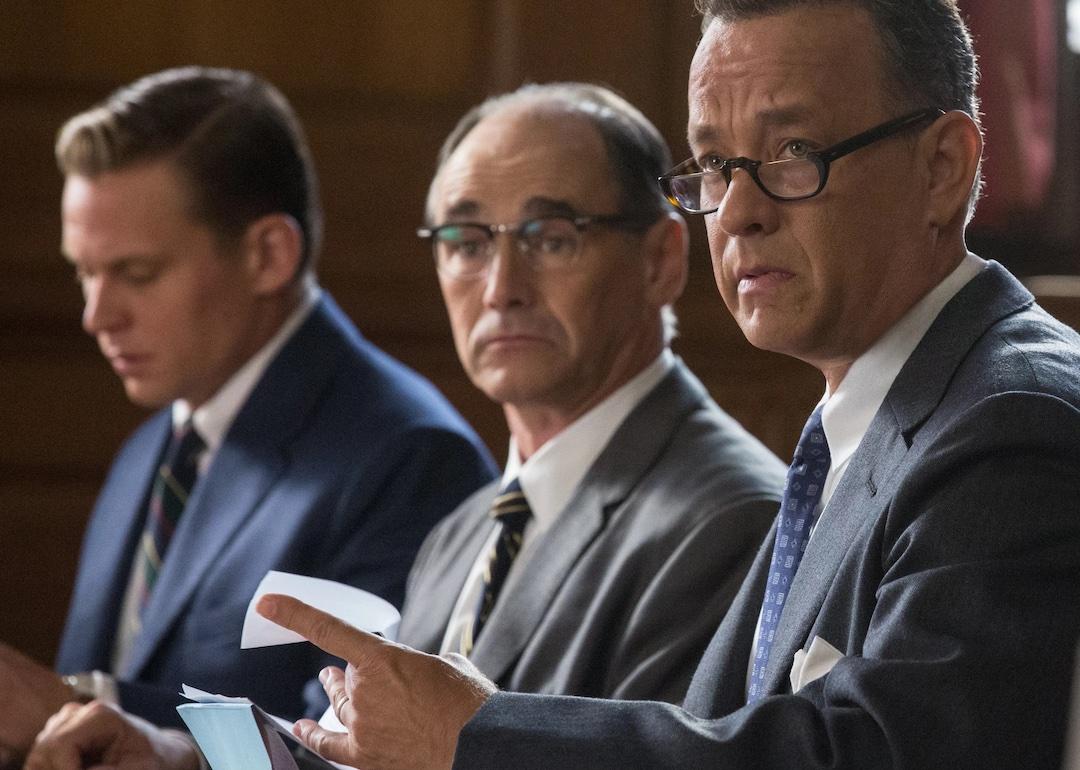
DreamWorks
#9. Bridge of Spies (2015)
– Stacker score: 85.33
– IMDb user rating: 7.6
– Metascore: 81
– Runtime: 142 minutes
“Bridge of Spies” tells the true story of lawyer James B. Donovan (Tom Hanks), who is tasked with negotiating the release of a captured U.S. Air Force pilot (Austin Stowell) in the Soviet Union in exchange for a convicted KGB spy named Rudolf Abel (Mark Rylance). The film was nominated for six Academy Awards, including Best Supporting Actor (Rylance). The film grossed $165 million worldwide and received mostly positive critical acclaim, with critics praising Spielberg for the film’s fun, thrilling depiction of this tense moment in history. The A.V. Club’s Ignatiy Vishnevetsky wrote of the film, “One of the most handsome movies of Spielberg’s latter-day phase, and possibly the most eloquent.”
You may also like: Sequels that outperformed the original at the box office
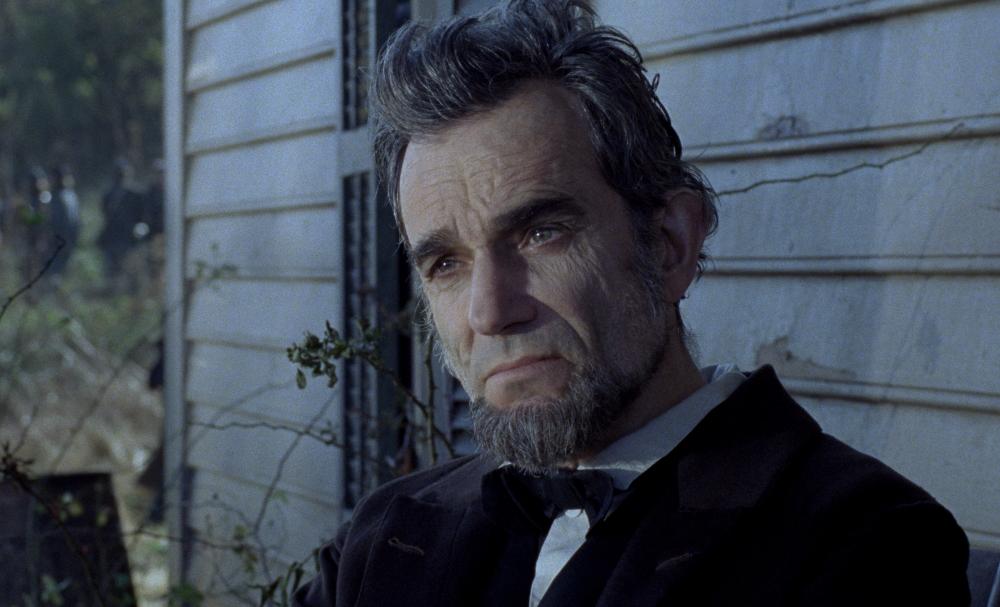
DreamWorks
#8. Lincoln (2012)
– Stacker score: 86.41
– IMDb user rating: 7.3
– Metascore: 86
– Runtime: 150 minutes
“Lincoln” is a historical drama detailing President Abraham Lincoln’s (Daniel Day-Lewis) 1865 crusade to pass the 13th Amendment to the U.S. Constitution in the last four months of his life. Loosely based on the biography “Team of Rivals: The Political Genius of Abraham Lincoln” by Doris Kearns Goodwin, “Lincoln” was a success at the box office, amassing $275 million, and earned 12 Academy Award nominations, including Best Picture, and two wins—for Best Actor and Best Production Design. The film’s 86 score on Metacritic is the highest of any Spielberg film since “Saving Private Ryan.”
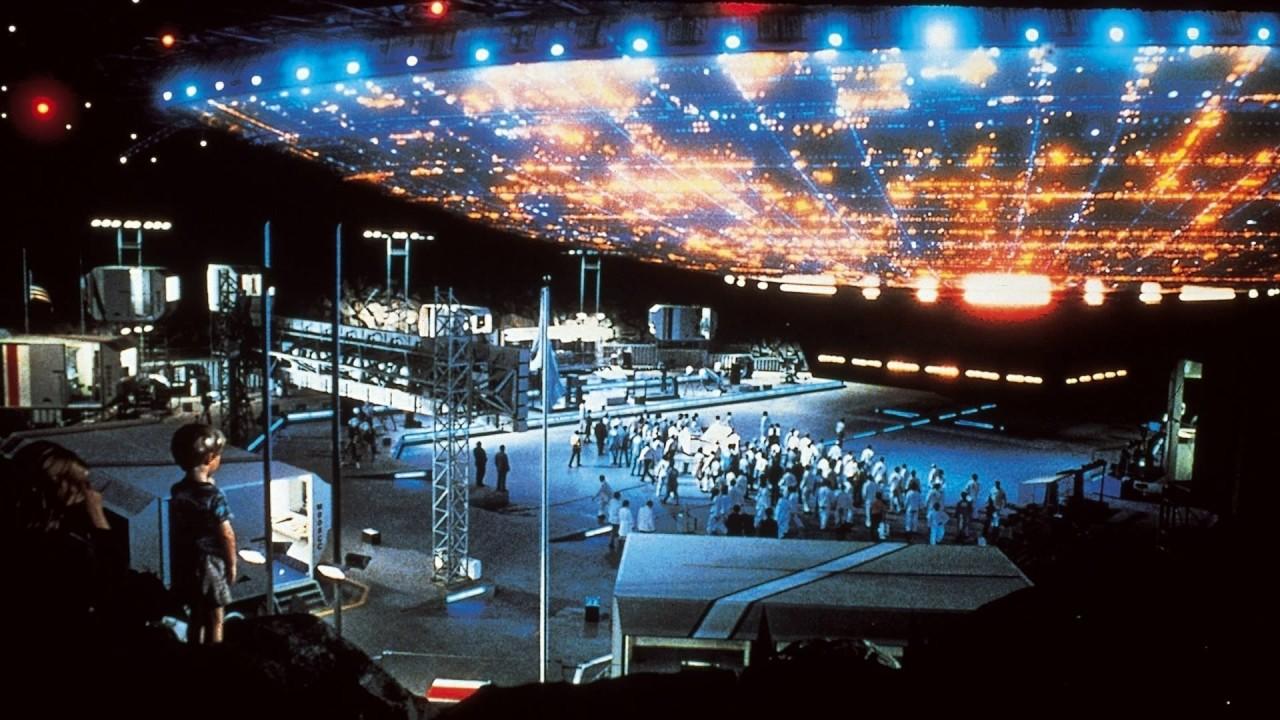
Columbia Pictures Corporation
#7. Close Encounters of the Third Kind (1977)
– Stacker score: 90.22
– IMDb user rating: 7.6
– Metascore: 90
– Runtime: 138 minutes
Written as well as directed by Spielberg, “Close Encounters of the Third Kind” tells the tale of Roy Neary (Richard Dreyfuss), a man in Indiana whose encounter with a UFO alters the course of his life. In 2007, the Library of Congress added the film to its National Film Registry for its “cultural, historical, or aesthetic significance.” The movie surpassed expectations for critics and the box office (though its competition with “Star Wars” in 1978 made Oscars and other accolades hard to come by), but “Close Encounters of the Third Kind” was mostly lauded for its ability to inspire more science fiction films. The Chicago Reader called the film “the best expression of Spielberg’s benign, dreamy-eyed vision.”
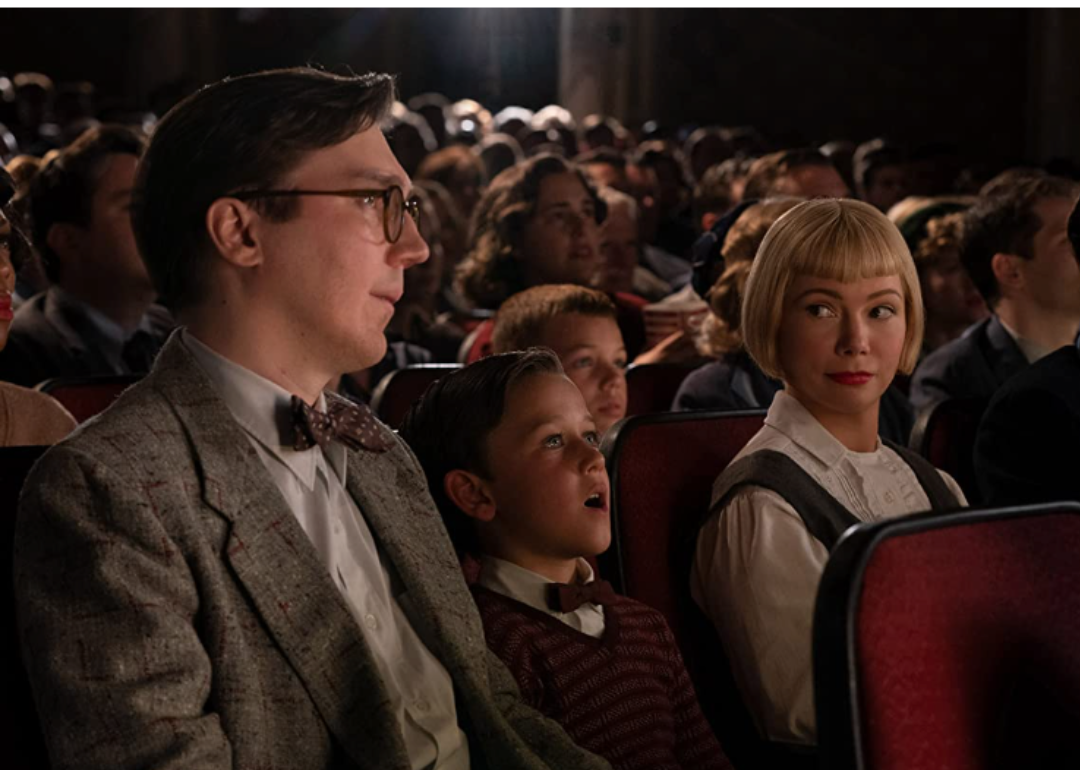
Amblin Entertainment
#6. The Fabelmans (2022)
– Stacker score: 90.76
– IMDb user rating: 8.3
– Metascore: 84
– Runtime: 151 minutes
Dreaming beyond his dysfunctional upbringing, young Sammy Fabelman’s (Gabriel LaBelle) life is forever changed once his parents introduce him to the wonders of motion pictures. With his mother’s (Michelle Williams) encouragement, Sammy sets off on an emotional, lifelong journey to becoming a filmmaker destined to share his love of movies with the world. Drawing loosely on Spielberg’s own formative years as an aspiring auteur, the director originally conceived “The Fabelmans” in 1999 (as “I’ll Be Home”); he courted Williams for the part of Mitzi (based on his late mother) more than a decade later after watching her Oscar-nominated turn in “Blue Valentine.” Critics lauded the film as yet another Oscar-worthy contender for Spielberg, whose latest effort boasts a 92% on the Tomatometer.
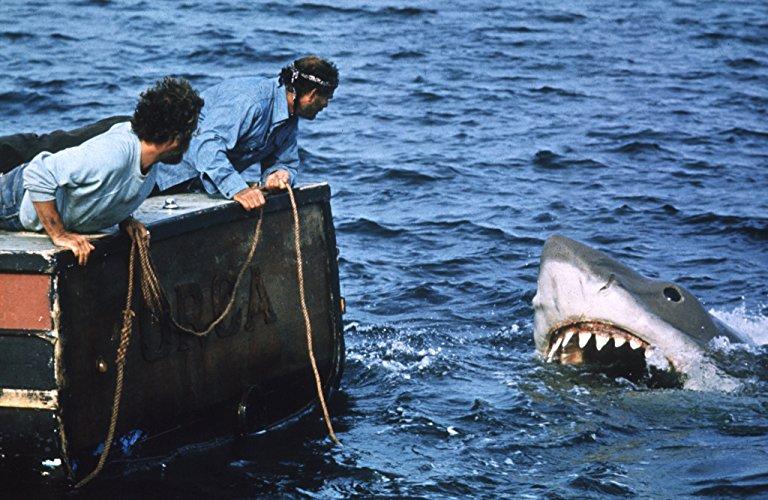
Zanuck/Brown Productions
#5. Jaws (1975)
– Stacker score: 91.3
– IMDb user rating: 8.1
– Metascore: 87
– Runtime: 124 minutes
Now widely regarded as the first example of the summer blockbuster, “Jaws” is the story of a giant man-eating great white shark that hunts and kills people in a resort town. This prompts the police chief (Roy Scheider), a marine biologist (Richard Dreyfuss), and a shark hunter (Robert Shaw) to find and kill the terrorizing sea monster. Another significant aspect of this film is John Williams’ score, which won an Academy Award and contains the alternating pattern of two notes that would become the prototypical example of suspense music. “Jaws” was the highest-grossing film of all time until 1977’s “Star Wars” and received critical praise and 97% on Rotten Tomatoes.
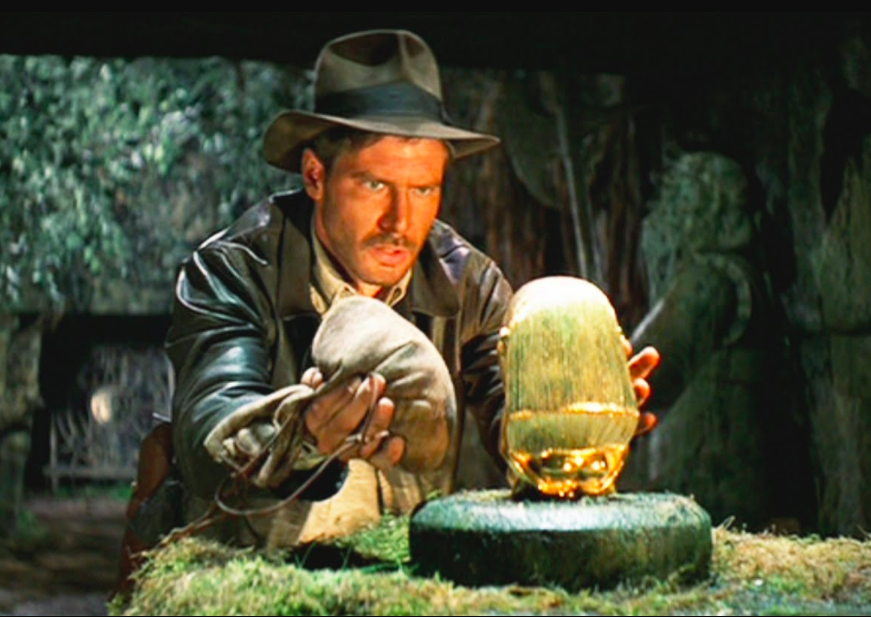
Paramount Pictures
#4. Raiders of the Lost Ark (1981)
– Stacker score: 91.85
– IMDb user rating: 8.4
– Metascore: 85
– Runtime: 115 minutes
“Raiders of the Lost Ark,” also known as “Indiana Jones and the Raiders of the Lost Ark,” is the first and highest-rated of the Indiana Jones series. In this installment, Indiana Jones (Harrison Ford) tries to find the Ark of the Covenant before the Nazis and Adolf Hitler, who want to use the ark to make the army invincible. When adjusted for inflation, the film remains one of the top 25 highest-grossing movies of all time and walked away with four of the nine Oscars for which it was nominated in 1982. The New York Times called the film “one of the most deliriously funny, ingenious and stylish American adventure movies ever made.”
You may also like: Why these famous films were banned around the globe
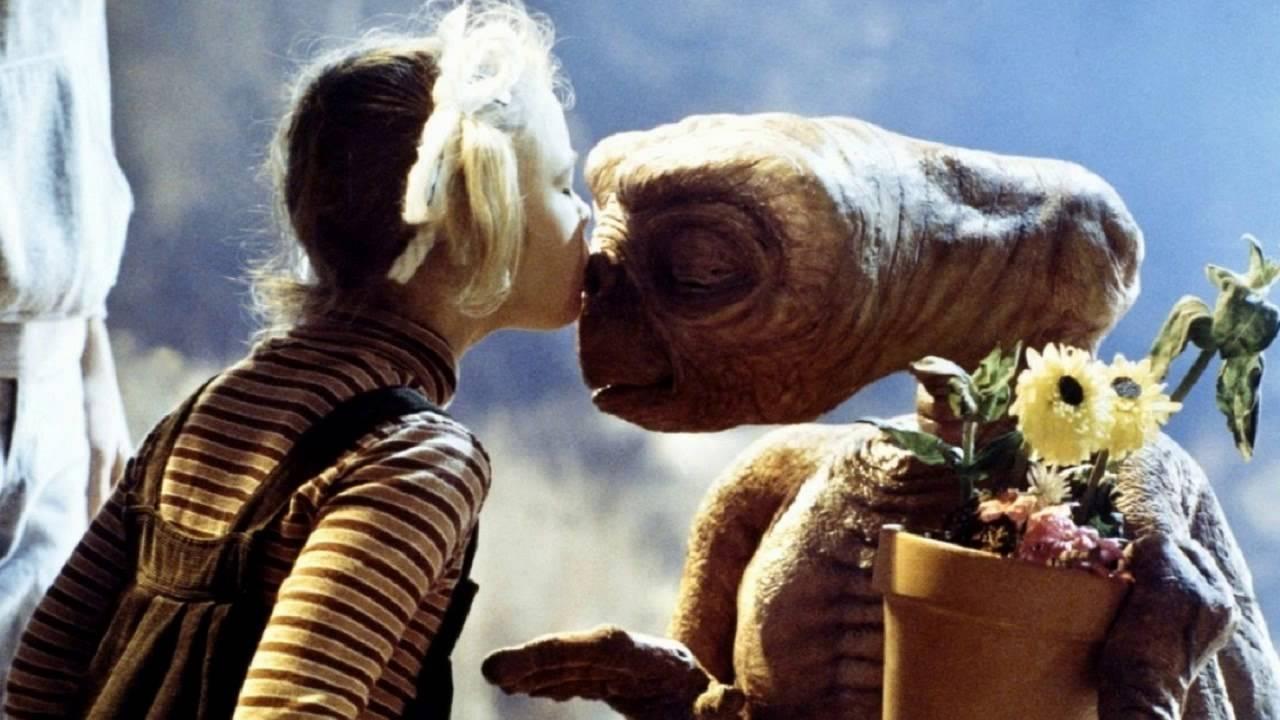
Universal Pictures
#3. E.T. the Extra-Terrestrial (1982)
– Stacker score: 92.39
– IMDb user rating: 7.9
– Metascore: 91
– Runtime: 115 minutes
Based on an imaginary friend Spielberg created after his parents’ divorce, “E.T. the Extra-Terrestrial” is the fantastical, sci-fi story of Elliott (Henry Thomas), a boy who befriends a stranded extraterrestrial alien called E.T. The movie beat “Star Wars” for the title of the highest-grossing movie of all time (earning $619 million worldwide), a record held for 11 years before Spielberg surpassed the feat with 1993’s “Jurassic Park.” Critics raved about the film. Richard Attenborough, whose movie “Gandhi” won Best Picture that year, said: “I was certain that not only would ‘E.T.’ win, but that it should win. It was inventive, powerful, [and] wonderful.”
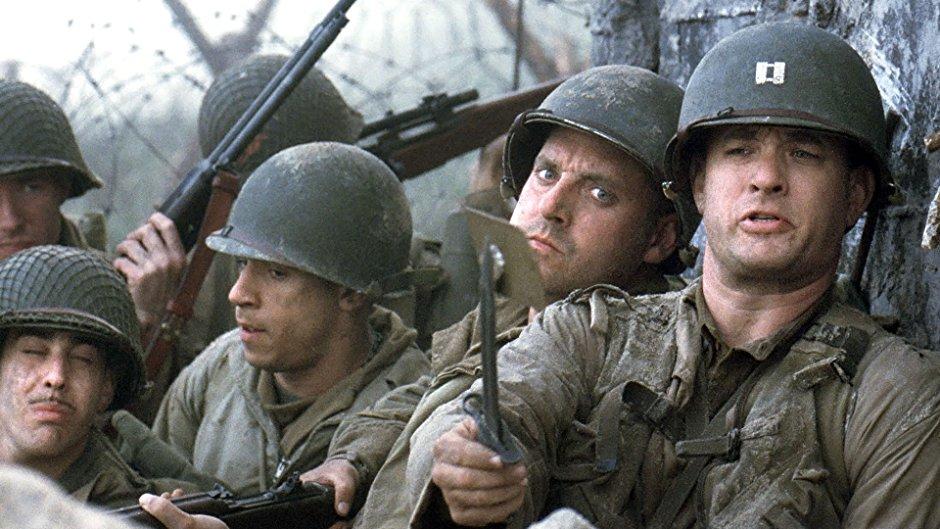
DreamWorks
#2. Saving Private Ryan (1998)
– Stacker score: 96.2
– IMDb user rating: 8.6
– Metascore: 91
– Runtime: 169 minutes
This 1998 war drama depicting the invasion of Omaha Beach in World War II is one of Spielberg’s best and was praised for its accurate and sincere depiction of the horrors of war. It follows U.S. Army Rangers Captain John H. Miller (Tom Hanks) and a team of servicepeople as they fight to find Private First Class James Francis Ryan (Matt Damon). “Saving Private Ryan” won five of 11 Academy Awards, including Spielberg’s second win for directing. The story’s audience and critical acclaim were apparent, but its effect hit veterans the hardest. Many found it to be the most accurate depiction of wartime violence they’d ever seen—so much so that the Department of Veterans Affairs set up a hotline for veterans affected by the film.
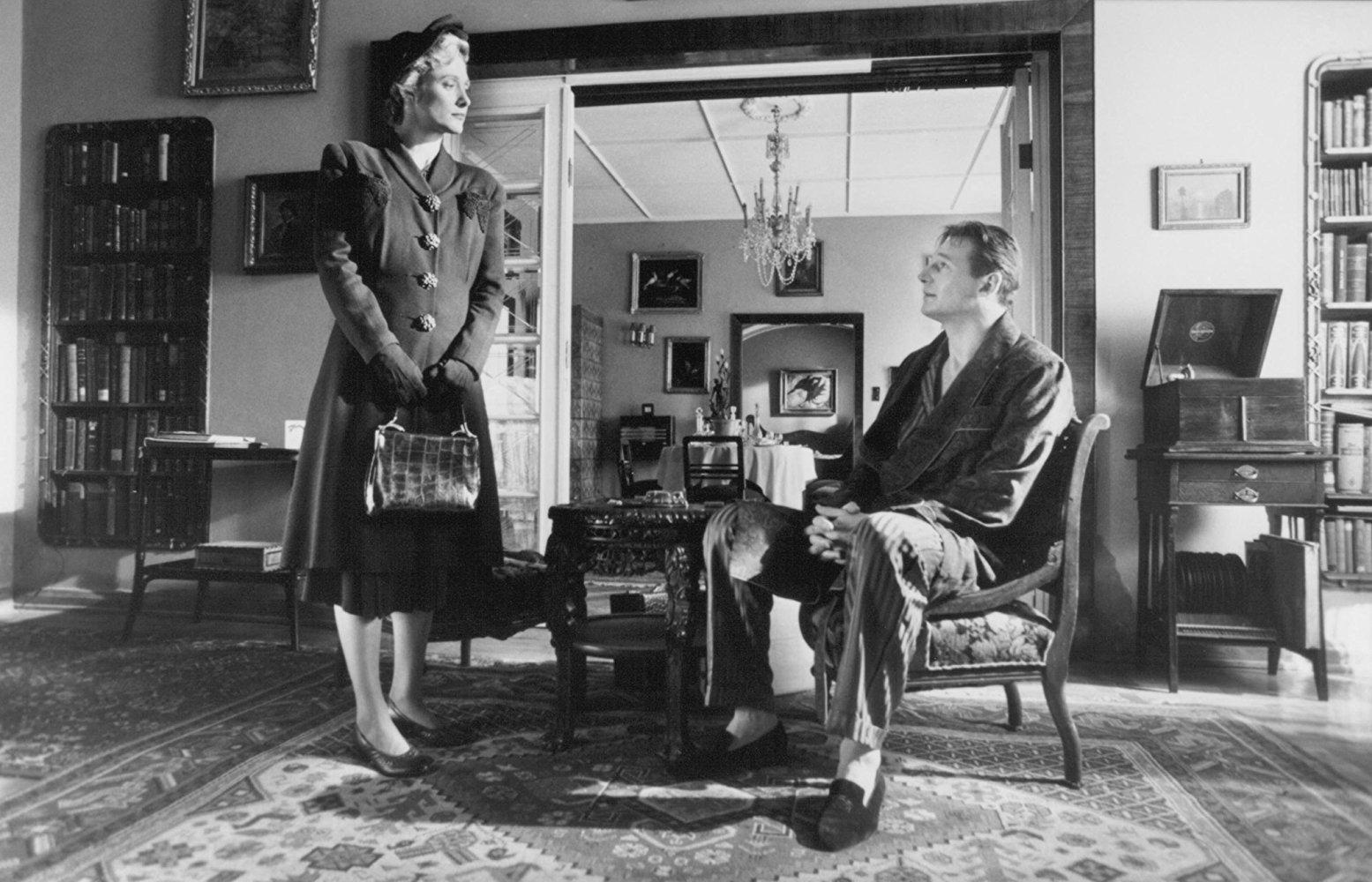
Universal Pictures
#1. Schindler’s List (1993)
– Stacker score: 100
– IMDb user rating: 9.0
– Metascore: 94
– Runtime: 195 minutes
Based on Australian Thomas Keneally’s novel “Schindler’s Ark,” the historical drama “Schindler’s List” remains one of Spielberg’s crowning directorial achievements. Based on a true story, the film centers on German businessman Oskar Schindler (Liam Neeson), who, during World War II, saved the lives of thousands of Polish Jewish refugees by employing them in his factory. Ralph Fiennes and Ben Kingsley also star. The movie received seven of 12 Academy Awards, including Best Picture, Best Director, Best Adapted Screenplay, and Best Original Score. The film, mainly due to its international appeal, made a killing at the box office and delighted critics everywhere. Most importantly, it brought light to more of the inhumane atrocities of WWII—following the film’s success, Spielberg founded the Shoah Foundation, a nonprofit whose goal is to create an archive of filmed testimony of the remaining survivors of the Holocaust.
